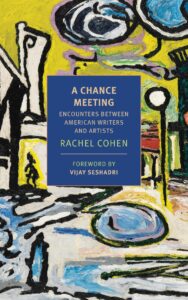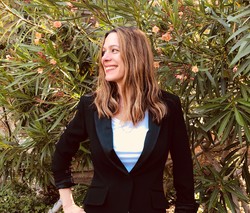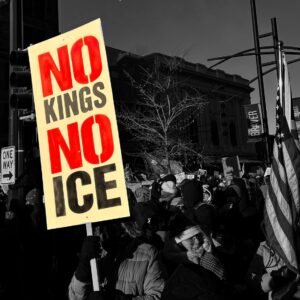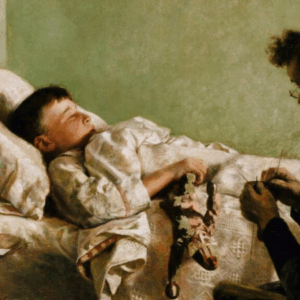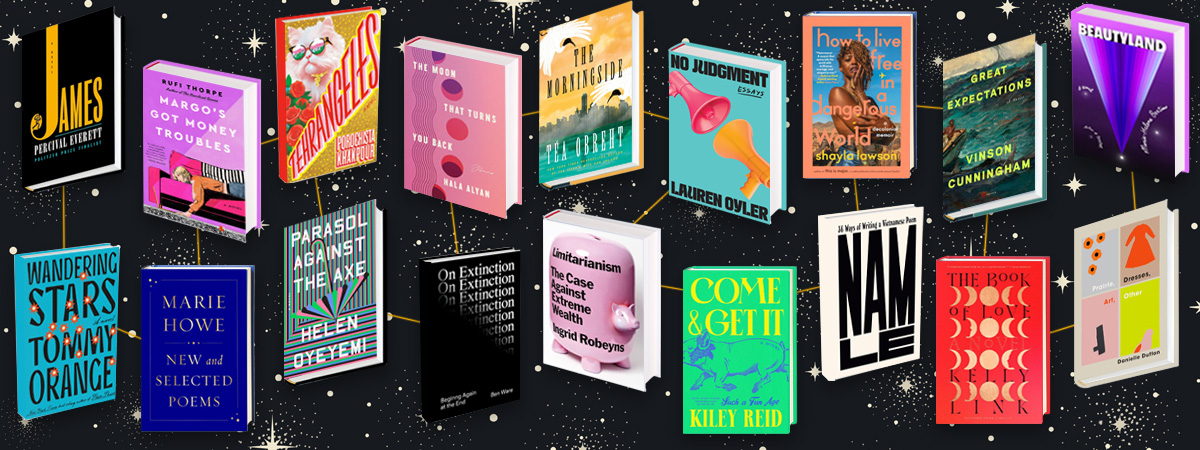
Lit Hub’s Most Anticipated Books of 2024
230 Books We’re Looking Forward to Reading This Year
Happy New Year, readers. 2023 had its ups and downs (mostly downs), but as always, at least it brought us some very good books. But now that you’ve read all the books last year had to offer (right?), it’s time for a brand new list.
Here are the books Literary Hub editors are most looking forward to (so far!) in the months to come.
JANUARY
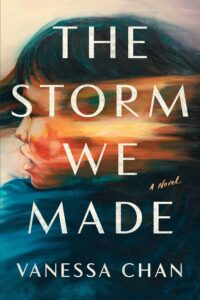
Vanessa Chan, The Storm We Made
S&S/Marysue Rucci Books, January 2
This highly anticipated debut novel from Vanessa Chan tells the story of a housewife turned spy in occupied Malaya during WWII. The chapters alternate between Cecily’s perspective and those of her children: her teenage son, one of many who’s gone missing; her daughter Jujube, who spends her days catering to Japanese soldiers; and her youngest daughter, Jasmin, hidden away for her own safety. An epic historical novel that’s both propulsive and poignant—expect to see this one about town. –Eliza Smith, special projects editor
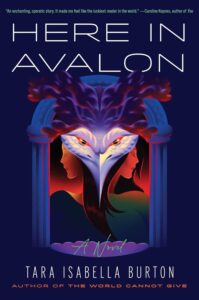
Tara Isabella Burton, Here in Avalon
Simon & Schuster, January 2
Tara Isabella Burton is a fascinating thinker and writer—she has a doctorate in theology from Oxford, and in addition to novels she writes nonfiction on things like contemporary American post-religious spirituality and our obsession with self-branding. I particularly loved her 2018 novel Social Creature (think Tom Ripley gets Instagram), so would I like to read her new book about a possibly magical theater cult? I would, I would. –Emily Temple, managing editor
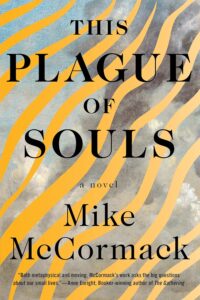
Mike McCormack, This Plague of Souls
Soho Press, January 2
I was blown away—or let’s be specific and say both profoundly moved and intellectually thrilled—by Irish writer McCormack’s 2016 Solar Bones, a novel about death (and also, necessarily, life) told in a single, enthralling sentence. Thus it is no surprise I am very much anticipating his next book, an “existential noir” in which a man returns home from prison to find his house empty, his family gone—and calls from a mysterious man who claims he can reveal the truth. –ET
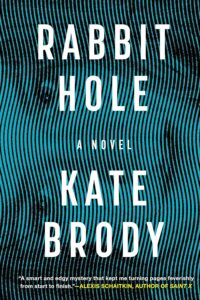
Kate Brody, Rabbit Hole
Soho Crime, January 2
This promising debut looks perfect for our Internet sleuth-y, murder-fixated age. It’s about a woman named Teddy whose sister, Angie, disappeared ten years ago, leaving behind a cold case and a broken family. Now their father has killed himself, and upon going through his belongings, Teddy discovers that he was involved in a Reddit community concentrated on solving Angie’s case. Teddy can’t help herself and falls down the “rabbit hole” of the Reddit community’s obsession, and allows it to take over her life. She forms a friendship with another member of the community, and slowly but surely loses sense of any previous priority, loses sense of who she was before. It’s twisty and addictive, just like the Reddit community, and the reader becomes as obsessed as Teddy is to solve this mystery. –Julia Hass, contributing editor
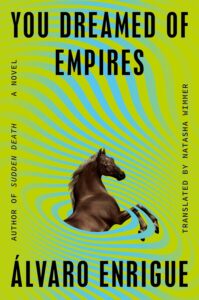
Alvaro Enrigue, trans. Natasha Wimmer, You Dreamed of Empires
Riverhead, January 9
Hell yes. I’m very much looking forward to reading another one of Enrigue’s bonkers, brain-bending historical novels (in his 2016 novel, Sudden Death, also translated by Wimmer, the Italian painter Caravaggio and the Spanish poet Francisco de Quevedo play tennis with a ball made from Anne Boleyn’s hair). Cortés also features heavily in Sudden Death, and Enrigue returns to his story in You Dreamed of Empire—but of course, it will not be the story we know, but a strange, fantastical version, Enrigue-style. Can’t wait. –ET
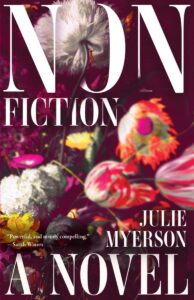
Julie Myerson, Nonfiction
Tin House Books, January 2
Myerson’s latest novel is an urgent, edged book about a novelist’s relationship with her daughter, who has sunk into a dangerous form of drug addiction, and also her own, cold, mother, or rather her memory of her. As a new parent I thought I might not be able to handle this novel, but as it turned out, I couldn’t stop reading. –ET
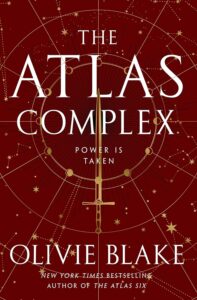
Olivie Blake, The Atlas Complex
Tor Books, January 9
Olivie Blake concludes her much-celebrated dark-academia trilogy in suitably devastating fashion. The six Alexandria Society initiates are back together and back in the library, but not for long: their dangerous caretaker Atlas Blake is still working on his world-ending plan. Expect equal parts romantasy and philosophy—Blake writing about the ethics of power is always a fun ride. –Drew Broussard, contributing editor
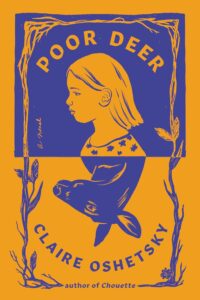
Claire Oshetsky, Poor Deer
Ecco, January 9
The latest from PEN/Faulkner nominee Oshetsky is about a young girl trying to come to terms with the death of her friend. But instead of facing the tragedy, she spins happily-ever-after stories for herself—until a strange creature called Poor Deer makes its way into her tales and demands the truth. By turns strange, beautiful, and tragic, Oshetsky’s story of tragedy and redemption is charming and eerie. –DB
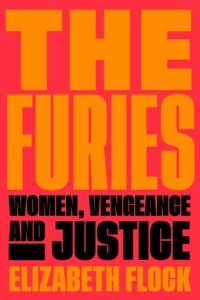
Elizabeth Flock, The Furies: Women, Vengeance, and Justice
Harper Books, January 9
Journalist Elizabeth Flock looks at justice with a Taddeo-esque approach, telling the stories of three women who killed after a wrong. There is a Southern U.S. woman who killed her rapist; the leader of a northern Indian gang that avenges victims of domestic violence; and a fighter in an all-female militia in Syria, where ISIS is working to dismantle the lives and rights of women. –JM
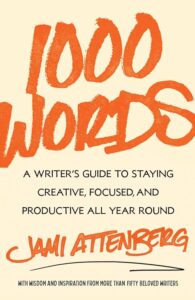
Jami Attenberg, 1000 Words: A Writer’s Guide to Staying Creative, Focused, and Productive All Year Round
S&S/Simon Element, January 9
Devotees of Attenberg’s fiction (All Grown Up, All This Could Be Yours, many others), and her pandemic-sparked newsletter, Craft Talk, have used her 1000-words-a-day-in-summer model to push novel and book projects along, helped by Attenberg’s feel-good approach to the sweaty toil of ~generative~ work. This offshoot of the project stretches the approach to get you through the year and includes tips from other Names like comedian and essayist Josh Gondelman. It will be the new Bird by Bird, you heard it here first. –JM
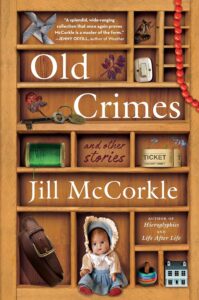
Jill McCorkle, Old Crimes: Stories
Algonquin Books, January 9
Those waiting for more of Jill McCorkle following her most recent novel Hieroglyphics are in for a treat. Her new short story collection is out January 9, and includes a couple who bring a confession booth into their home, initially for fun, and a phone-line service-man (think the Norman Rockwell painting) who feels estranged from his family in the mobile age. Take me there, Jill! –JM
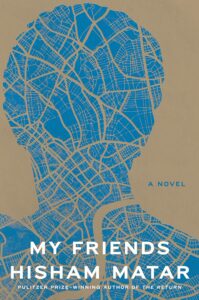
Hisham Matar, My Friends
Random House, January 9
American-Libyan Hisham Matar has written an exile novel with the Arab Spring at its center, pushed along by the power of fiction. Khaled’s journey from Libya to the UK begins when he hears a short story read on the radio about a man eaten alive by a cat–it’s the early days of his waking up to understand the Qaddafi regime. He leaves his parents behind and moves to London to study. There, he attends a protest that turns ugly, stranding him outside his country and family. People who loved Matar’s In the Country of Men will be on this one early. –JM
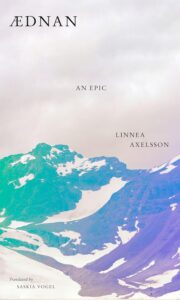
Linnea Axelsson, trans. Saskia Vogel, Aednan
Knopf, January 9
This family epic about two Sámi families begins in the 1910s with matriarch Ristin leading a reindeer migration meets with the new border between Sweden and Norway, rupturing family and culture. Fifty years on, Lise is “educated” in a boarding school for indigenous children, and her daughter Sandra later on fights for Sámi land rights. Listen to a sample here. –JM
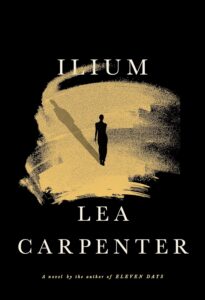
Lea Carpenter, Ilium
Knopf, January 16
At last Lea Carpenter is back (after 2018’s Red, White, Blue) with another sideways approach to the international spy novel—in this one, a young woman is swept off her feet by a much older suitor, but after they’re married, he asks her for a “favor”…never a good thing. –ET
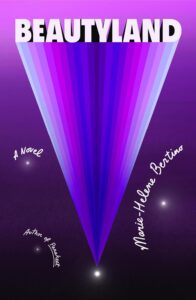
Marie-Helene Bertino, Beautyland
FSG, January 16
Marie-Helene Bertino’s wry, melancholy, utterly bewitching third novel is the coming-of-age story of a young Philadelphia woman named Adina who also happens to be an alien—born in 1977 to a hardworking Italian-American “Earth mother” but “activated” at age four by her extraterrestrial superiors and tasked with sending dispatches about the nature of humanity back to her home planet (though where that planet is, what life might be like there, or what her true kin even look like, Adina does not know). Deftly blurring the line between reality and metaphor to create a work of exquisite beauty, joyfully off-kilter humor, and aching sorrow, Beautyland, and Adina’s lonesome journey, will fill and then shatter your heart. –Dan Sheehan, Book Marks editor-in-chief
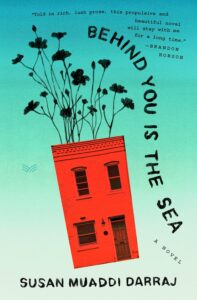
Susan Muaddi Darraj, Behind You is the Sea
HarperVia, January 16
This debut novel-in-stories from the award-winning author of A Curious Land: Stories from Home and the Farah Rocks children’s book series is a kaleidoscopic portrait of a Palestinian American community in Baltimore, focusing on three immigrant families and their differing experiences of life in the U.S. Muaddi Darraj, a vocal advocate for Palestinian culture who won an American Book Award in 2016, has written a rich, complex, and moving immigrant story with a beautifully-rendered ensemble cast. –DS
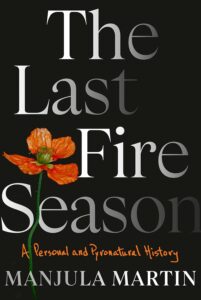
Manjula Martin, The Last Fire Season: A Personal and Pyronatural History
Pantheon, January 16
If you’ve fantasized about moving back to your childhood home, you know it can never be quite the same. For Manjula Martin, a tree-change to the Sonoma forests is defined by the naked threat of forest fires and climate change: in 2020, she was evacuated as the state burned. A personal history turned examination of fire and ecology, The Last Fire Season is strangely timely amid a balmy winter some have never experienced before. –JM
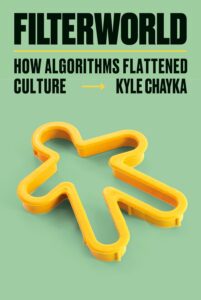
Kyle Chayka, Filterworld: How Algorithms Flattened Culture
Doubleday, January 16
Kyle Chayka is a master at capturing truths about our online existence (like why the internet isn’t fun anymore) in a manner as astute as it is entertaining. His sophomore book “traces the creeping, machine-guided curation” of the all-powerful algorithm “as it infiltrates the furthest reaches of our digital, physical, and psychological spaces.” I’m as terrified as I am excited to read this one. –Jessie Gaynor, senior editor
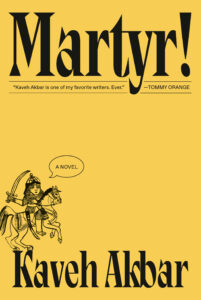
Kaveh Akbar, Martyr!
Knopf, January 23
This satirical autobiographical debut novel by Iranian-American writer and Poetry Editor of The Nation is the story of a newly sober, martyr-obsessed orphaned son of Iranian immigrants who embarks on a quest to uncover for a long-buried family secret that leads him to a terminally ill painter living out her final days in the Brooklyn Museum. The buzz around Martyr has been intense, and if it’s even a fraction as good as the wildly effusive blurbs suggest (“An absolute jewel of a novel. A diamond. I haven’t loved a book this much in years,” said Tommy Orange, while Lauren Groff called it “The best novel you’ll ever read about the joy of language, addiction, displacement, martyrdom, belonging, homesickness.”), it promises to be one of the most dazzling debuts of the year. –DS
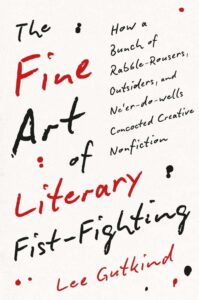
Lee Gutkind, The Fine Art of Literary Fist-Fighting: How a Bunch of Rabble-Rousers, Outsiders, and Ne’er-do-wells Concocted Creative Nonfiction
Yale University Press, January 23
Though I am sure there were plenty of people who knew how to be weird while telling true stories prior, Lee Gutkind is credited with “fathering” the CNF movement in the ‘60s. Here, he traces his own route from Easy Rider bikie to academic and writer, and looks at how writers like Joan Didion, Uptown Sinclair, Janet Malcolm and James Baldwin navigated the gap between facts and storytelling. –JM
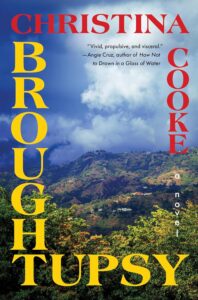
Christina Cooke, Broughtupsy
Catapult, January 23
I’ve been looking forward to this since I heard Cooke read the opening pages nearly two years ago. Set in the 1990s in Jamaica, this assured debut begins when Akúa’s brother dies and she leaves Canada to return to her native Jamaica in the hopes of reconnecting with her sister, Tamika. But when Akúa starts spending her time with a stripper, the difficult realities of being gay in a religious family and in a homophobic society provoke a reckoning for Akúa and Tamika. –DB
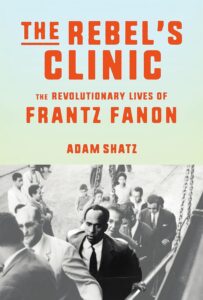
Adam Shatz, The Rebel’s Clinic: The Revolutionary Lives of Frantz Fanon
FSG, January 23
In 2023, with Verso, Adam Shatz published Writers and Missionaries: Essays on the Radical Imagination, which looked at the sometimes thorny relationship between contemporary writers’ writing and their politics, so a biography of Frantz Fanon makes sense as the subject of his new book. The Rebel’s Clinic charts the life of Fanon, who left Martinique to fight for France in WW2, then found himself drawn into Existentialism in the postwar years. An examination of one of the pre-eminent writers and activists of the postcolonial period, The Rebel’s Clinic also serves as a primer for Fanon’s most famous works, Black Skin, White Masks and The Wretched of the Earth. –Samuel Rutter, contributing editor
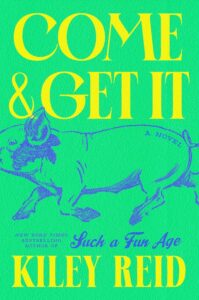
Kiley Reid, Come and Get It
Putnam, January 30
As a massive Such a Fun Age fan, I’ve been waiting for the new Kiley Reid for a long time. I thought her 2020 novel was so incisive and accessible, plotty and smart, that it makes me all the more excited for her next venture. Reid was good at every part of that story: depicting whiteness, the bond between babysitter and child, being 25 and lost, she could do it all, and did it all with warmth and empathy, even for the characters who didn’t always deserve it. This new book promises all the same ability at depth and poignancy through a fun, plotty story: a campus novel this time, about an RA named Millie, and her entanglement with a visiting professor. It’s a perfect recipe for a great January read: in a college setting, about discretion and desire, about money, want, and, most importantly, it’s by Kiley Reid. –JH

Chris Dixon, Read Write Own: Building the Next Era of the Internet
Random House, January 30
One of the curious things about the internet is that discourse about the internet is often led by the same VCs and tech visionaries looking to capitalize on it, as evidenced by the rupture around EA in 2023. Read Write Own promises to put the eras of internet in context up to web3, and is blurbed by Bob Iger, Sam Altman, Mark Cuban (“Shark Tank; Dallas Mavericks”) and the president of Coinbase. –JM
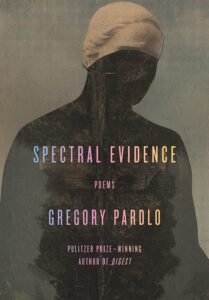
Gregory Pardlo, Spectral Evidence
Knopf, January 30
When one of America’s foremost poets publishes a collection for the first time in nearly a decade it is a major event—particularly when that poet is uniquely suited to grappling with what’s been going on in America over the past nine years… Spectral Evidence is Gregory Pardlo’s first collection of poetry since he won the Pulitzer Prize in 2015, and it picks up where Digest left off. As ever Pardlo moves through poetic registers with ease, from high to low and back again, as he witnesses the world in all its terrible beauty. From fallen heroes of professional wrestling (seriously) to this country’s infinite hostility to its Black citizens, Pardlo’s is the poetic eye (and heart) we need right now. –Jonny Diamond, editor in chief
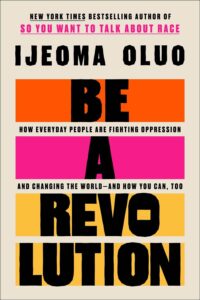
Ijeoma Oluo, Be a Revolution
Harper One, January 30
Ijeoma Oluo’s breakout hit So You Want To Talk About Race came out in 2018 but was discovered by many readers as the 2020 murder of George Floyd galvanized people across the U.S. to face the racist undercurrents. Be a Revolution sets out to look at how everyday people are using anti-racist approaches to reform systems big and small–in schools, in hospitals, in criminal justice–and map a way forward for those who want to push for change. –JM
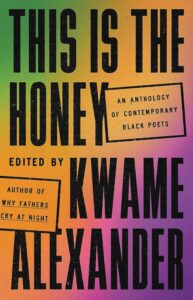
Kwame Alexander, ed., This Is the Honey: An Anthology of Contemporary Black Poets
Little, Brown, January 30
This collection of “resilient joy” includes work from Rita Dove, Jericho Brown, Ross Gay, Tracy K. Smith and Terrance Hayes that captures poignant moments of beauty and pride: Jacqueline A.Trimble likens “Black woman joy” to indigo, tassels, foxes, and peacock plumes. Tyree Daye, Nate Marshall, and Elizabeth Acevedo reflect on the meaning of “home” through food, from Cuban rice and beans to fried chicken gizzards. I feel this will make a good gift in 2024. –JM
FEBRUARY
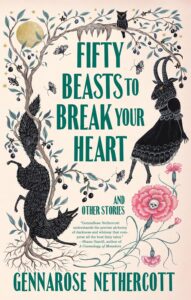
GennaRose Nethercott, Fifty Beasts to Break Your Heart: Stories
Vintage, February 6
Nethercott continues to build on the successes of her magical debut Thistlefoot with a collection of strange and fantastical tales that bring to mind Neil Gaiman and Kelly Link. Filled with folklore, Americana, and an infectious imagination, every single story is a knockout—but the gorgeously illustrated titular bestiary is a highlight. –DB
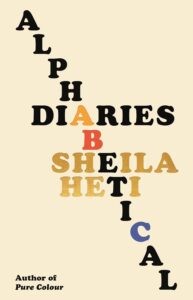
Sheila Heti, Alphabetical Diaries
FSG, February 6
If I’m being honest, I had doubts about this one. The story goes that Sheila Heti—she of literary cool girl status—transcribed ten years’ worth of her diaries into Microsoft Excel, sorted them alphabetically, and voila! Alphabetical Dairies was born. (I’m being completely facetious about the voila; at least I think I am.) What emerges, however, is an entirely new reading experience, and a better portrait of growing into one’s self than most coming-of-age novels I’ve read. I only wish my own diaries were so appealing. –ES
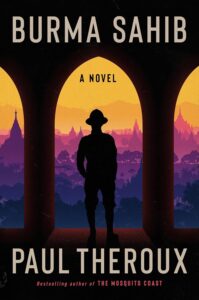
Paul Theroux, Burma Sahib
Mariner Books, February 6
The concept: Retracing the beginnings of George Orwell, born Eric Arthur Blair, an Eton graduate and conscript of the British Empire in India. Burma Sahib follows Eric through his first assignment abroad in colonial India, where he is put in charge of local Burma police and clashes with his superiors. Somewhere along the way this friction sparks the anti-colonial writer we all know. Paul Theroux has taken us back and forth across the subcontinent many times, and this feels like a fascinating journey. –JM
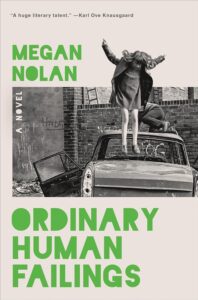
Megan Nolan, Ordinary Human Failings
Little, Brown, February 6
Continuing the boom in Irish lit, Megan Nolan’s latest delves into class and bias in 1990s London. A dead child sparks an investigation by a reporter looking for a good scoop, and leads him toward a family of liminal Irish peasants: the Greens. Among the family is Carmel, once beautiful, we are told, and living a life of disappointment and loss, and hemmed in by family secrets. –JM
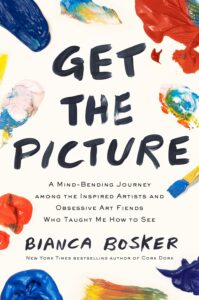
Bianca Bosker, Get the Picture
Viking, February 6
Bosker’s Cork Dork probably my most-gifted book, and I loved her whole-hearted dive into the world of wine. When I found out that her next journey would take her into the fine-art world, I was immediately all-in. It’s a passionate, brilliant examination of why humans make and value art, from a joyous and gifted investigator. –DB
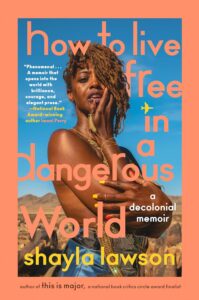
Shayla Lawson, How to Live Free in a Dangerous World: A Decolonial Memoir
Tiny Reparations Books, February 6
If you haven’t encountered Shayla Lawson’s work yet, consider this your formal invitation. How to Live Free in a Dangerous World is a jet-setting memoir that explores race, gender, disability, and love through an unbelievable itinerary: Venice, Zimbabwe, Mexico City, Portugal, Tokyo, Bermuda—the list goes on. Lawson writes with fierceness, wisdom, and vulnerability in a voice that can’t help but captivate. Treat yourself. –ES
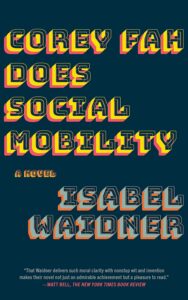
Isabel Waidner, Corey Fah Does Social Mobility
Graywolf, February 6
Corey Fah has been named the winner of a major literary award that turns out to be a UFO… and things get weirder, much much weirder, from there in this bizarre and hilarious look at internet fame and literary success. Waidner’s last novel (Sterling Karat Gold) won the Goldsmiths Prize, which is awarded to fiction that “extends the possibilities of the novel”—and Corey Fah promises even more gonzo imagination and structural strangeness. –DB
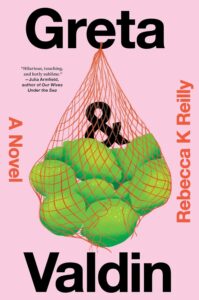
Rebecca K. Reilly, Greta & Valdin
Avid Reader Press, February 6
This novel is being pitched as Normal People meets Schitt’s Creek, which I have to say . . . I really cannot imagine. But if it’s as funny as early reports suggest, I’ll be giving this novel, a quirky family epic/queer love story that was a bestseller in the author’s native New Zealand, a chance. I think we’ll be needing some extra light this year. –ET

Ingrid Robeyns, Limitarianism: The Case Against Extreme Wealth
Astra House, February 6
Belgian economist and philosopher Robeyns coined the term “limitarianism,” which refers to the idea that there should be a cap on how much money any one person is able to accumulate; this is her argument for its practical value to the world at large (even rich people). It’s not as radical as it sounds, especially given the state of, well, everything right now. –ET
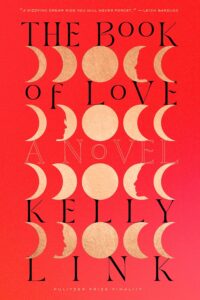
Kelly Link, The Book of Love
Random House, February 13
It’s not so often that a debut novelist is already a MacArthur “Genius” Grant recipient and a Pulitzer finalist, but then we’ve been waiting for Kelly Link’s debut novel for a long time now. Lovers of big, immersive literary fantasy (and, of course, of Link) will not be disappointed—this is a nimble, clever, and deeply satisfying novel, in which a handful of teenagers, most of them recently dead, get dragged into an age-old grudge match between mythic creatures of unending (or possibly ending, but no spoilers) power. All of it is rendered in Link’s trademark winking, personable prose, which tends to deliver something pleasurable on every page. (Very often, in this case, it is a sassy comeback.) So yes, this novel has Big Buffy Energy—that is, sometimes it is fun and ridiculous, sometimes it is a tragedy on an epic scale, but always there is someone looking askance at the goings-on, even while their world is ending. Well, there are worse ways to get through February. –ET
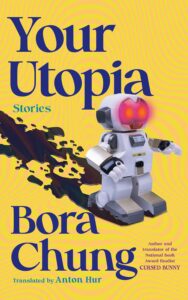
Bora Chung, tr. Anton Hur, Your Utopia: Stories
Algonquin Books, February 13
Chung’s last short story collection, Cursed Bunny, also translated by Hur, was shortlisted for the International Booker Prize and was a finalist for the 2023 National Book Award in Translated Literature; I can only assume this one will be just as good. If you need any further convincing, read Hur’s answers to our interview questions from earlier this year. –ET
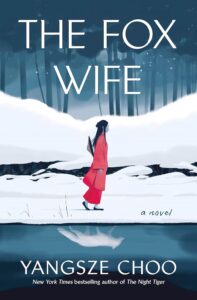
Yangsze Choo, The Fox Wife
Henry Holt, February 13
Late in the Qing Empire, foxes are rumored to be gods of a kind, capable of luring people to their deaths by appearing as beautiful men and women. A courtesan is found dead, kicking off an investigation by a man named Bao. His quest crosses paths with a bereaved mother and a family cursed to see their eldest sons die before their twenty-fourth birthdays. Lots of mythology, family intrigue, and of course foxes. –JM
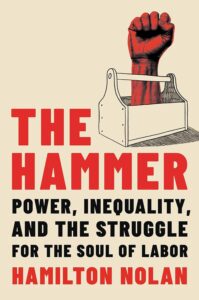
Hamilton Nolan, The Hammer: Power, Inequality, and the Struggle for the Soul of Labor
Hachette, February 13
You don’t have to read Thomas Piketty’s Capital to understand that extreme wealth disparity is bad for any society (but it helps!). And as labor reporter and longtime Gawker writer Hamilton Nolan shows with The Hammer, the best way to reverse America’s decades-long slide into a new Gilded Age is through the power of organized labor. Though unions have long been targeted by those in power, Nolan shows how a new generation of activists—catalyzed by the stark lessons of the pandemic—has rallied support for labor across this country, winning some real battles in the long, slow war against the top of the wealth pyramid. –JD
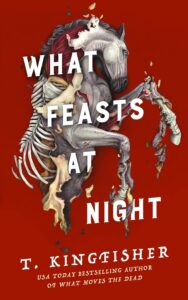
T. Kingfisher, What Feasts at Night
Tordotcom, February 13
Alex Easton returns in the sequel to Kingfisher’s What Moves the Dead, her spectacular re-telling of “The Fall of the House of Usher.” Easton has made it back home to Gallacia but the family estate is in total disarray, the groundskeeper is dead, and rumors abound about a breath-stealing monster out of folklore. It’s sure to be eerie and gripping, as Kingfisher novellas always are. –DB
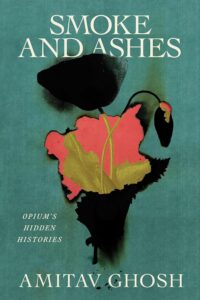
Amitav Ghosh, Smoke and Ashes: A Writer’s Journey through Opium’s Hidden Histories
FSG, February 13
Amitav Ghosh, it would seem, can just about do it all as a writer: as a wonderful novelist, a brilliant essayist, and now, with Smoke and Ashes, as a historian-cum-memoirist-cum-travel writer. Based on decades of archival research, both personal and historical, Ghosh’s hybrid history follows the intersecting routes of the 19th-century opium trade, a transnational economy powered by the devastating fusion of colonialism and capitalism. As one of the world’s first truly global commodities, opium made its way from China to India to Britain and back again, impacting the lives of many millions, from the lowliest deckhands to the richest New York families to members of Ghosh’s very own family. –JD
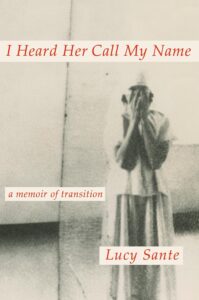
Lucy Sante, I Heard Her Call My Name: A Memoir of Transition
Penguin Press, February 13
The iconoclastic Sante opens up with stories about her life (born in Belgium, transplanted to the US, finding her way in ‘70s NYC) to help illuminate the journey of personal discovery that led to her transition. Not to be missed, it’s a powerful example of self-reflection and a vibrant exploration of the modern dynamics of gender and identity. –DB
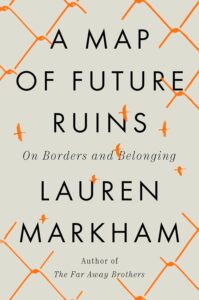
Lauren Markham, A Map of Future Ruins: On Borders and Belonging
Riverhead, February 13
Lauren Markham’s intrepid reporting is always a pleasure to read, and you get the feeling that with A Map of Futures many of her writerly interests, from the heritage of ideas to her own family heritage, and, of course, the ethics and praxis of migration, have found their perfect combination. This book charts how a sprawling refugee camp in Greece, that no one wanted in the first place, was burnt down in 2020, with six young Afghan refugees arrested for the crime. –SR
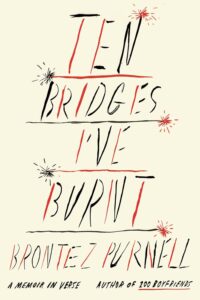
Brontez Purnell, Ten Bridges I’ve Burnt: A Memoir in Verse
MCD/FSG, February 13
To say that Brontez Purnell is one of my favorite American writers isn’t quite right, mostly because the word “writer” doesn’t nearly encapsulate the high-camp-queer-gonzo-performance-art that is inseparable from his daily life. Written in a similarly hectic style to 2021’s 100 Boyfriends, this is a memoir in 38 fragments that pulls no punches: one of the essays is in fact about a punch-on at a poetry reading. –SR
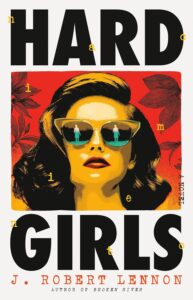
J. Robert Lennon, Hard Girls
Mulholland Books, February 20
J. Robert Lennon is one of the great genre-hoppers and I can’t wait to see what he gets up to in the crime sphere. We’ve got estranged twins reconnecting to find their mother, globe-hopping adventure, family secrets, and the pace of a great thriller? Plus, things are often quite a bit stranger than what the jacket copy says in a Lennon novel, so I’m excited to see how this goes. And it’s apparently the first in a series! –DB
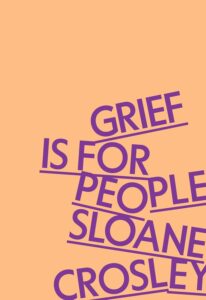
Sloane Crosley, Grief is for People
MCD, February 27
I love Sloane Crosley’s voice: she’s wry and conversational and real, and she feels like someone I know, or want to know. Which makes it all the harder when she goes through something devastating, as she did a couple years ago: she lost her closest friend Russell, her old boss, her dearest confidante, to suicide. Grief is For People is her attempt at comprehending the incomprehensible: how this could have happened, were there signs, and most horribly, was there anything she could have done to prevent it. A suicide memoir can be a tough cookie, but this one manages to not be as brutal as they can be. It is more a meditation on loss, and a eulogy for this man she loved than anything else, and manages to hold onto that trademark Crosley humor and tenderness throughout. –JH
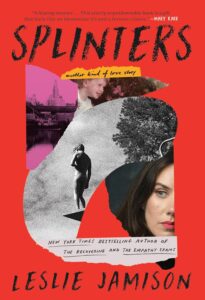
Leslie Jamison, Splinters: Another Kind of Love Story
Little, Brown, February 20
I haven’t read a book so earth-shatteringly honest as this in a while: it brings to mind I Love You, But I’ve Chosen Darkness by Claire Vaye Watkins in its rawness, its truth. We last heard from Leslie Jamison with Make it Scream, Make It Burn, a trademark book of Jamison essays that discussed, among many other things, her marriage. Here we are on the other side, after the splintering, after the marriage ended. Splinters is about divorce, and family, and motherhood, and lineage, and mainly about the stories of our life: what to do when the story no longer fits. How to put together a quest for beauty and the ugliness of a hard marriage and hard choices. How to move forward, how to forgive ourselves. The best, most bracing, powerful memoir I’ve read: set an alert for February 20th and get it as soon as you can. –JH
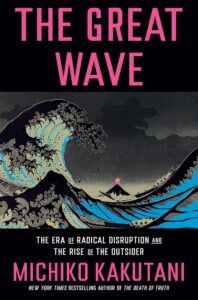
Michiko Kakutani, The Great Wave: The Era of Radical Disruption and the Rise of the Outsider
Crown, February 20
What has the ex-chief book critic of the New York Times been up to? Well, this: A deep-dive into the chaos post-Global Financial Crisis. It’s a story of digital disruption, the politics of outsiders, and multiplying crises. Author Joseph Ellis writes that “If you’re trying to decide whether the world is going crazy or you are, Michiko Kakutani’s new book should prove uplifting.” ‘Tis me. –JM
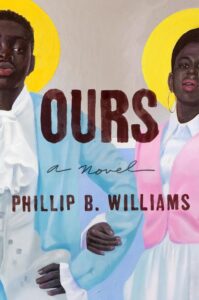
Phillip B. Williams, Ours
Viking, February 20
In the 1830s, a woman named Saint creates a hidden town outside St. Louis she calls “Ours.” There, she welcomes those she has freed from slavery by attacking plantations, attempting to keep Ours a utopia for those within. But over time, her power to magically conceal the town falters, and cracks appear in the safety of her sanctum. What is freedom if you can’t leave? If you loved Libertie, or you’re a Toni Morrison acolyte, this one will be a goodie. –JM
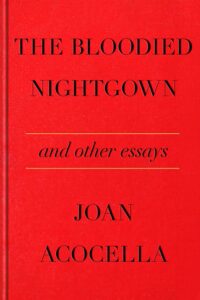
Joan Acocella, The Bloodied Nightgown and Other Essays
FSG, February 20
Joan Acocella has been on staff at the New Yorker for almost 30 years, and has tackled all manner of art as critic (dance, foremost, but her insights stretch to everything from Richard Pryor’s comedy to Greta Gerwig’s Little Women). Here, a collection spanning the past decade and a half gathers sharp insights on J.R.R. Tolkien’s translation of Beowulf and the writer Elmore Leonard, among 22 other witty, probing essays. –JM
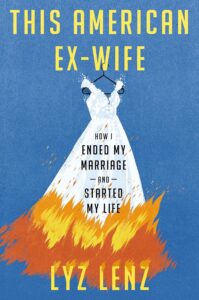
Lyz Lenz, This American Ex-Wife: How I Ended My Marriage and Started My Life
Crown, February 20
Lyz Lenz is a fearless writer. Whether via tweet, newsletter, or book, Lenz is always ready to call out the myriad hypocrites and idiots that seem to dominate contemporary American life (regardless of how powerful the idiot in question might be). With This American Wife Lenz adds to her already impressive canon of cultural criticism by taking on one of patriarchal America’s bedrock institutions: marriage. Through a vivid mix of research, reporting, and personal anecdote, Lenz reveals the power imbalances inherent to traditional heterosexual marriage, and calls for a radical act of refusal by women who have been too-long defined by their relationships to men. –JD
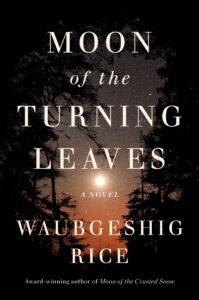
Waubgeshig Rice, Moon of the Turning Leaves
William Morrow, February 27
Post-apocalypse, a community of Anishinaabe people have made a new home in what was at one time called Northern Ontario, Canada, finding that their ancestor’s ways aren’t enough to sustain them on their land anymore and that they must move on. A small exploration party, led by Evan Whitesky, hikes toward the Great Lakes region, encountering the ruins of their old life and the threat of other survivors. –JM
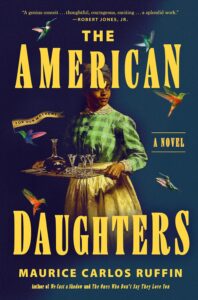
Maurice Carlos Ruffin, The American Daughters
One World, February 27
Ady and her mother Sanite are together in the French Quarter, enslaved to the same man when the novel opens, but of course slavery means that staying together is never a guarantee. Alone, Ady meets a free woman who introduces her to a secret society of revolutionaries–the titular “Daughters”–and sets things in motion for Ady. Ruffin is a son of NoLa, and his previous novel We Cast a Shadow was a finalist for the PEN/Faulkner Award among many other noms. –JM
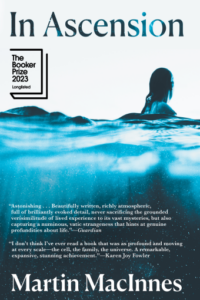
Martin MacInnes, In Ascension
Black Cat, February 27
I can’t wait to read this Booker longlisted novel, which takes its protagonist, Leigh, from the unfathomable depths of the ocean to the farthest reaches of the cosmos, while ruminating on little things like existence and big things like familial obligation and love. A literary sci-fi doorstopper is just what the dark days of February call for. –ES

Steve Coll, The Achilles Trap: Saddam Hussein, The C.I.A., and the Origins of America’s Invasion of Iraq
Penguin Press, February 27
Nothing good ever comes from a nuclear power’s asymmetrical response to terrorism, no matter how awful the act; more often than not, many thousands of innocent civilians end up dead. This is but one terrible lesson from Steve Coll’s in-depth new history of America’s misadventures in Iraq and the man at the heart of it all: Saddam Hussein. Drawing from a wide variety of sources—unpublished reports, eye-witness interviews, Hussein’s own personal archives—Coll assembles a portrait of a paranoid dictator who found enemies wherever he looked, some of whom (looking at you Bush family), made the tragic mistake of confirming his worst fears. –JD
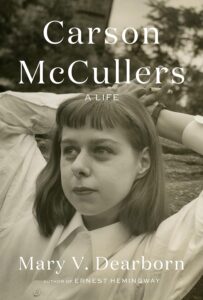
Mary V. Dearborn, Carson McCullers: A Life
Knopf, February 27
The broad strokes of Carson McCullers are: born in the South, a smash debut novel at age 23—The Heart Is a Lonely Hunter, published in 1940—and a wild marriage that ended in the suicide of her jealous husband. Dearborn goes deeper here into McCullers’ life using letters and journals to build out the biography of one of the South’s great writers and offer a more complex portrait of someone who felt she was “born a man” and felt a deal of friction between her understanding of the world and that of the people in it. –JM
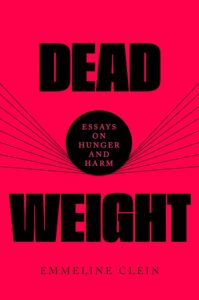
Emmeline Clein, Dead Weight: Essays on Hunger and Harm
Knopf, February 27
The body-positivity, body-neutrality and anti-diet cultural waves have at times limited discussion of eating disorders and dulled the historical nature of the urge to shrink one’s body. Busting somewhat out of the discourse, Emmeline Clein’s essay collection on “harm and hunger” goes back to Anne Boleyn and forwards to the era of, in her own coinage, “dissociative feminism,” if you recall her viral 2019 BuzzFeed essay, promising to promote “radical acceptance of all our appetites instead: for food, connection, and love.” –JM
MARCH
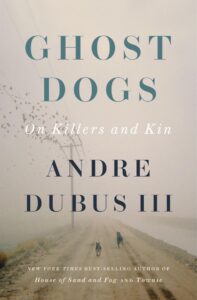
Andrew Dubus III, Ghost Dogs: On Killers and Kin
W.W. Norton, March 5
A decade after his essential memoir Townie, Dubus delivers career-defining suite of essays about working hard, growing up, and growing older. The book includes “If I Owned a Gun,” his powerful interrogation of guns and masculinity and why he ultimately gave up owning a weapon. –DB
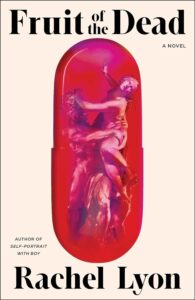
Rachel Lyon, Fruit of the Dead
Scribner, March 5
When an 18-year-old camp counselor gets swept away to an isolated island as the nanny for a shady pharma billionaire’s kids, her mother sets off to find her and bring her back. I’m a sucker for a good myth-retelling, especially when it doesn’t sweat the plot points too hard, and so I’m very excited for Lyon’s riff on Persephone & Demeter. Pharma billionaire Hades? Yes please. –DB
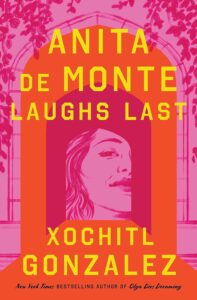
Xochitl Gonzalez, Anita de Monte Laughs Last
Flatiron, March 5
In 1998, art history student Raquel is struggling to find a place at her elite college where the majority of students are white. But when she starts dating a popular older student, she suddenly finds herself at the top of the social ladder. That’s when Raquel discovers the story of artist Anita de Monte. A rising star who died tragically in 1985, Anita’s story is strangely similar to Raquel’s own, and it forces Raquel to reconsider her own life and relationships. Told by both Anita and Raquel, Gonzalez’s newest novel is a dynamic exploration of love, art, and power. –McKayla Coyle, publishing coordinator
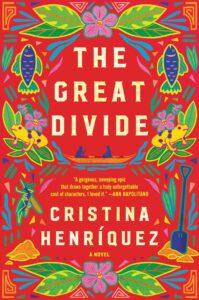
Cristina Henríquez, The Great Divide
Ecco, March 5
The Great Divide is an epic story told from the perspective of ordinary people. Following the intersecting lives of three characters living in Panama, this historical novel tells the story of the Panama Canal’s construction. Omar is a Panamanian fishmonger who takes a job working on the canal, Ada Bunting is a teenage stowaway from Barbados trying to raise money for her sister’s surgery, and John Oswald is a scientist working to eradicate malaria. When these three meet on the banks of the Panama Canal, their lives are forever changed. A compassionate and insightful historical epic. –MC
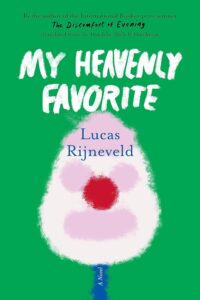
Lucas Rijneveld, trans. Michelle Hutchinson, My Heavenly Favorite
Graywolf, March 5
Here comes a novel that wears its debt to Lolita—is it just me, or are we seeing a lot of novels lately that are taking Nabokov’s classic and running with it?—pinned on its chest with abject pride. After winning the International Booker Prize in 2020 with The Discomfort of Evening, Rijneveld returns with a novel narrated by a disgraced veterinarian who falls for the daughter of a farmer in rural Netherlands, a protean girl on the edge of puberty who’d much prefer a boy’s body. –SR
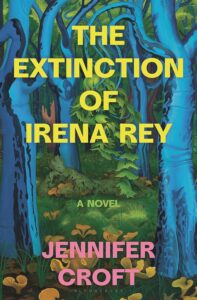
Jennifer Croft, The Extinction of Irena Rey
Bloomsbury, March 5
You’ve read the work of brilliant translator Jennifer Croft before—the translation from Polish of Nobel laureate Olga Tokarczuk’s Flights and The Books of Jacob (also Romina Paula’s August and Sylvia Molloy’s Dislocations, among others). Her debut novel, The Extinction of Irena Rey, follows eight translators who gather in Białowieża forest to meet with world-renowned author Irena Rey in order to translate her magnum opus, Gray Eminence. But within days of their arrival, Irena disappears and the translators, slavishly devoted to “Our Lady of Literature,” attempt to find her. In an interview with the New York Times, Croft says, “Translators overwrite originals, making texts in other languages visible and invisible at once. Without translators, literary traditions and even languages might rot in isolation. With translators, the literary ecosystem keeps up the diversity it needs in order to flourish.” With this knowledge, The Extinction puts translators first, and with humor and grace explores art, celebrity, and the power of language. –Emily Firetog, deputy editor
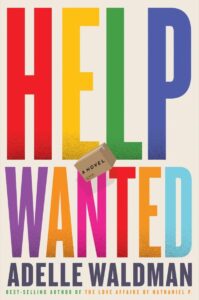
Adelle Waldman, Help Wanted
W.W. Norton, March 5
As a fan Waldman’s very funny, painfully familiar debut The Love Affairs of Nathaniel P., I’ve been impatiently awaiting her sophomore novel for years. It comes in the form of a workplace comedy about the employees at big box store in upstate New York as they compete for a management position, which sounds like the perfect showcase for Waldman’s skill in both ruthless character study and dark comedy. –JG
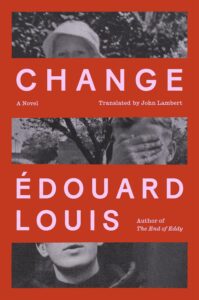
Édouard Louis, trans. John Lambert, Change
FSG, March 5
Thirty-one-year-old Édouard Louis writes some of the best nonfiction published today, full stop. I can’t wait to read his latest, billed as an autobiographical novel, in which “Eddy” becomes Édouard, leaving behind his violent, working-class hometown for Paris, a life of the mind, and the relentless pursuit of becoming someone else (which is, of course, another kind of violence). –ES
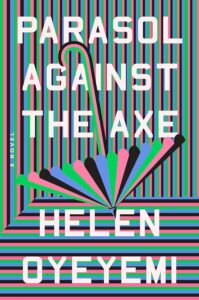
Helen Oyeyemi, Parasol Against the Axe
Riverhead, March 5
Any year we get a new Helen Oyeyemi is cause for celebration, but I’m particularly excited about this fun, absurdist pitch: two estranged friends, a bachelorette party in Prague, and a book called Paradoxical Undressing that changes every time it’s read. Oh, and evidently Parasol Against the Axe is written from the perspective of Prague itself. I’m all in. –ES
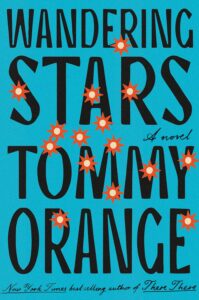
Tommy Orange, Wandering Stars
Knopf, February 27
Cheyenne and Arapaho Tribe member Tommy Orange’s first book, the critically acclaimed short story collection There There, was a full-blown literary sensation upon its release in 2018, winning both the National Book Critics Circle John Leonard Prize and the PEN/Hemingway Award. It was also a finalist for the Andrew Carnegie Medal for Excellence in Fiction and the 2019 Pulitzer Prize, as well as a New York Times bestseller. Not bad for a debut. His highly anticipated sophomore novel, Wandering Stars, traces the legacies of the Sand Creek Massacre of 1864 and the notorious Carlisle Indian Industrial School through three generations of a family. –DS
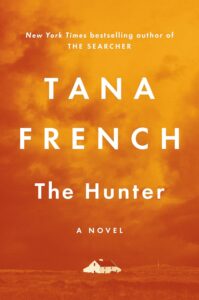
Tana French, The Hunter
Viking, March 5
French returns to the same small town in the west of Ireland where she set The Searcher, picking up the story of Cal and Trey, who find themselves embroiled in yet another murderous mystery to do with the Reddys. You needn’t have read The Searcher to appreciate this novel—which is wonderfully evocative, entertaining and propulsive all the way through, even if I still miss the magic-tinged weirdness of French’s Dublin Murder Squad series—but it helps to understand some of the motivations. Besides, there are worse reasons to revisit a good book. –ET
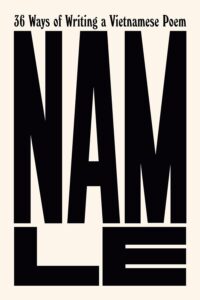
Nam Le, 36 Ways of Writing a Vietnamese Poem
Knopf, March 5
While I am normally very skeptical of blurbs, it’s hard to ignore praise from J.M. Coetzee AND Nick Cave, both of whom rave about Nam Le’s ambitious book-length poem, 36 Ways of Writing a Vietnamese Poem. Le, who burst onto the international literary scene with his 2008 story collection, The Boat, continues to grapple with the complexities and contradictions of the diaspora experience, at once articulating the racism and oppression of life as a refugee while also expressing a need to not be defined by that experience. –JD
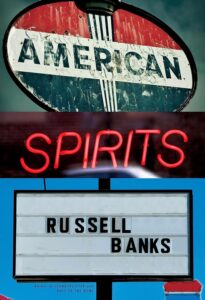
Russell Banks, American Spirits
Knopf, March 5
Russell Banks, who died a year ago next week, has always been a master at elevating the small calamities of everyday American life into full-blown tragedy, revealing all the dark ways our grief and despair can spill into something larger, more menacing, than we ever imagined. With his final novel, American Spirits, Banks takes us to upstate New York with three connected stories of small-town life gone very wrong. –JD
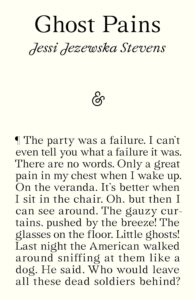
Jessi Jezewska Stevens, Ghost Pains
And Other Stories, March 5
Another book making the case for 2024 being a banger of a year for short fiction, Ghost Pains collects Stevens’ fiction from The Baffler, Harpers, The Paris Review and elsewhere into a “shambolic” journey. (I’m in.) Fans of The Exhibition of Persephone Q and slightly hallucinatory The Visitors will be excited to see where she takes them next. –JM
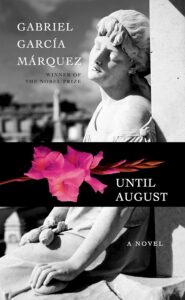
Gabriel García Márquez, trans. Anne McLean, Until August
Knopf, March 12
Until August was Gabriel García Márquez’s last novel; he finished it near the end of his life, while he was struggling with dementia, but ultimately decided it shouldn’t be published. Now, ten years after his death, his sons are releasing the book, which is being described as “an extraordinary and profound tale of female freedom and desire.” One final work from a literary master will certainly be worth a look. –ET
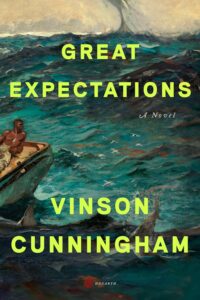
Vinson Cunningham, Great Expectations
Hogarth, March 12
Vinson Cunningham is a brilliant culture writer and theater critic whose New Yorker pieces have made him one of the magazine’s rising stars, so I was delighted to see that the 2020 National Magazine Award finalist has now written a novel. Great Expectations is the story of a young Black man who goes to work for the presidential campaign of a charismatic Illinois senator (Cunningham previously served as a staff assistant at the Obama White House), along the way encountering “a myriad of people who raise a set of questions … that force David to look at his own life anew and come to terms with his identity as a young Black man and father in America.” –DS
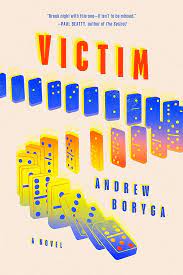
Andrew Boryga, Victim
Doubleday, March 12
In Boryga’s debut novel, Victim, a hustler on the rise learns to manipulate the currency of identity as he bends the truth about his past and establishes himself in the world of New York media and letters. The satire in this novel comes in sharp and merciless, but the friendship at the story’s center steals the show, rounding out all the complexities and contradictions of two young men on different sides of the truth. Boryga is a keen observer of culture and a talented storyteller with style to spare. –DM
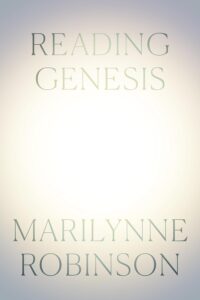
Marilynne Robinson, Reading Genesis
FSG, March 12
You’ve read Genesis, but have you really read it? As a piece of literature, that is, as opposed to a historical document or madlib composed by multiple people over multiple centuries? Honestly, an interesting project for Gilead’s Robinson, who gives pre-Milton Eden the proper treatment. –JM
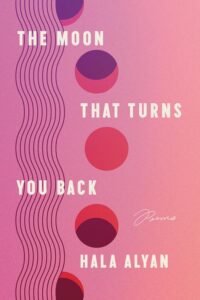
Hala Alyan, The Moon That Turns You Back
Ecco, March 12
Palestinian-American poet, novelist, and clinical psychologist Hala Alyan, a recipient of both the Dayton Literary Peace Prize and the Arab American Book Award, has been an essential voice in these dark, devastating times. She writes about the complexities of displacement and exile, the nature of home, and the dehumanizing nature of the western gaze (“They like me in a museum. / They like me when I spit my father from my mouth”) with incredible lyricism, beauty, and fury. Her new collection of poetry, The Moon That Turns You Back, “traces the fragmentation of memory, archive, and family—past, present, future—in the face of displacement and war.” –DS
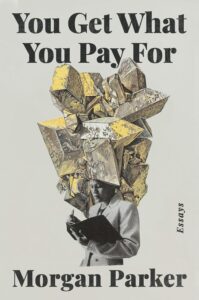
Morgan Parker, You Get What You Pay For: Essays
Random House, March 12
I queue up to read Morgan Parker, and you should too. In her debut essay collection, the award-winning author of Magical Negro pursues a personal and cultural history of life as a Black woman in America. Weaving personal narrative with current events and historical context, Parker delivers a must-read account of her own psyche, written with the precision and lyricism of a poet. –ES
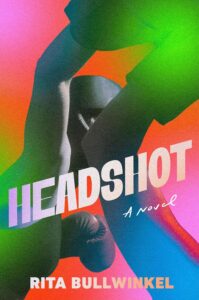
Rita Bullwinkel, Headshot
Viking, March 12
Welcome to the 12th Annual Women’s 18 & Under Daughters of America Cup at Bob’s Boxing Palace, and to Bullwinkel’s sports novel that reads like an opera. Alongside dialogue-less accounts of fights that are hypnotically intense, we get the girls’ backstories and the moments that brought them to the ring. “Usually, as a tournament progresses, there is a feeling of whittling, of a group of many reduced to a single champion, but here in Bob’s Boxing Palace, at the Daughters of America tournament, as each bout has been fought, there has been the feeling of accumulation.” Bullwinkel’s 2018 story collection Belly Up was beautiful and strange, and the novel has the same intensity of characters and unpacking of the human spirit, with the narrative arc of every great sports story. –EF
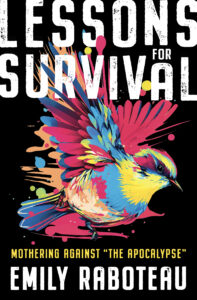
Emily Raboteau, Lessons for Survival: Mothering Against “The Apocalypse”
Henry Holt, March 12
An instant cornerstone of what I see as the emerging motherhood-climate genre (Mobility, The Quickening), Lessons for Survival was reported out by Raboteau as a multi-continent journey for stories of mothers trying to help their kids thrive. There are Indigenous stories amid changing ecological patterns, of course, but also meditations on life in cities amid pollution, and the intersection of race and quality of life. –JM
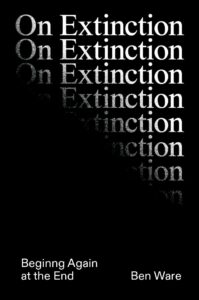
Benjamin Ware, On Extinction: Beginning Again At The End
Verso, March 12
It is foolhardy to think we can reverse the devastating effects of the climate crisis—and the immense threat to human existence they pose—with anything but the most radical change in course. Sadly, with every passing month, that change seems impossible. What philosopher Ben Ware is asking, then, is for us to imagine—to internalize—the reality of human finitude, the end of us. Only then, he suggests, will we be able to take in the full horizon of what we’ve wrought and, perhaps, move forward into a new and radical version of our shared future. –JD
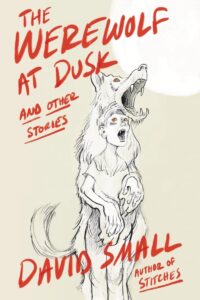
David Small, The Werewolf at Dusk: Stories
W.W. Norton, March 12
An interesting trio of illustrated stories, one original and two adaptations. The title story is an adaptation of Lincoln Michel’s tale of an aging werewolf, there’s an adaptation of Jean Ferry’s most famous story “Le Tigre Mondain,” and Small adds an original about a man lost on dreamlike streets. All three are brought together by Small’s gorgeous illustrations. –DB
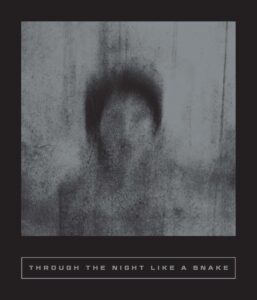
Various, Through the Night Like a Snake: Latin American Horror Stories
Two Lines Press, March 12
The latest in Two Lines’ terrific Calico imprint, dedicated to bringing yet-untranslated stories and writers into English in community. This one rides a wave of interest in Latin American horror and features stories from translation sensations like Mariana Enriquez and Monica Ojeda as well as writers making their English-translation debut. It’s guaranteed to be a weird, unsettling, and beautiful collection. –DB
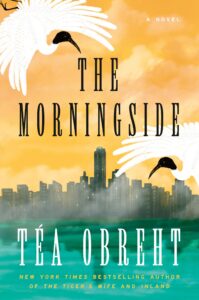
Téa Obreht, The Morningside
Random House, March 19
Obreht is known for her masterful, myth-touched epics, but as it turns out, she can do slender and incisive as well as she can do sweeping. (This novel is still myth-touched, though.) Not too long from now, a girl named Silvia lives in a once-luxurious tower in a place called Island City, half-underwater, and half-lawless, the tides and crimes reported by an underground radio host whose identity is a mystery. Silvia and her mother came from somewhere far away—but Silvia doesn’t understand exactly why they had to leave, or why her mother has sworn her to secrecy about their origins. Then there’s the mysterious woman who lives in the penthouse, who might or might not be a magical creature who could fix (or destroy) everything. I won’t give any more away, except to say that like all of Obreht’s work, The Morningside is filled with tiny moments of acute observation and beautiful writing that will make you stop and gasp, and also like all of Obreht’s work, you’ll be thinking about it all long after you’ve finished reading. A magical, special book by one of our best working novelists. –ET
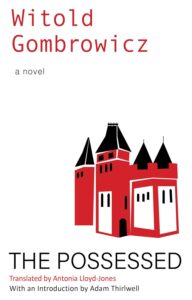
Witold Gombrowicz, trans. Antonia Lloyd-Jones, The Possessed
Black Cat, March 19
Polish novelist Witold Gombrowicz is a genius of the absurd (read his masterpiece Cosmos); more English speakers should read him. Here’s a good opportunity: The Possessed, an early Gombrowicz novel that Grove’s Black Cat is publishing in a new translation by Antonia Lloyd-Jones, is a pastiche of the Gothic novel featuring “bewitched towels, conniving secretaries, famous clairvoyants, uncanny doubles” and a mad prince. Can’t wait. –ET
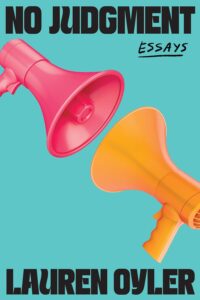
Lauren Oyler, No Judgement: Essays
HarperOne, March 19
Oyler is one of our most delightful working critics, not least because she’s not afraid to be actually, you know, critical. Her first collection contains eight new essays, the topics being (according to her website) “revenge, gossip, Goodreads, expats, autofiction, vulnerability, anxiety, and spoilers.” So basically all my favorite topics… –ET
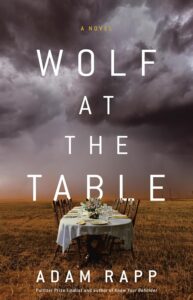
Adam Rapp, Wolf at the Table
Little Brown, March 19
I’ve been a fan of Rapp’s brand of visceral human storytelling since his upstart-playwright days and his new novel looks like a doozy: a multi-generational saga about a family with a potential serial killer in their midst. What could be more quintessentially American? –DB
Rachel Cohen, A Chance Meeting: Encounters Between American Writers and Artists
NYRB Classics, March 19
“The thirty people gathered here met in ordinary ways,” Cohen writes in the introduction to this treasure trove, originally published in 2004. “A careful arrangement after long admiration, a friend’s casual introduction, or because they both just happened to be standing near the drinks.” These aren’t just any thirty people, of course, but rather American cultural icons from Walt Whitman to Gertrude Stein to Willa Cather Marcel Duchamp to Zora Neale Hurston to James Baldwin to John Cage, whose meet-cutes (or meet-plains) are collected in this fascinating, genre-bending treasure trove. –ET
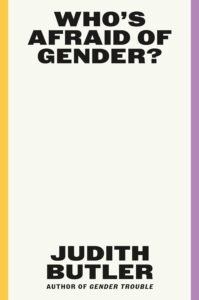
Judith Butler, Who’s Afraid of Gender?
FSG, March 19
We all love Judith Butler. If Gender Trouble, published in 1990, gave us the tools to speak more expansively about gender and the human experience, something seems to have been lost in translation by bad actors since. Who’s Afraid of Gender brings us up to today, and explains “how ‘gender’ has become a phantasm for emerging authoritarian regimes, fascist formations, and transexclusionary feminists.” –JM
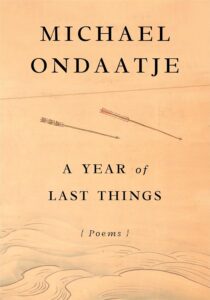
Michael Ondaatje, A Year of Last Things
Knopf, March 19
By my counting, Ondaatje is now 80 and has published seven novels (including, yes, The English Patient), 13 books of poetry and a host of other anthologies and such. Next up, the Sri-Lankan-Canadian (“I’m not much of a Tamil now,” he told The Guardian in 2011) is turning back to his past with a poetry collection in which we “journey back through time by way of alchemical leaps, unearthing writings by revered masters, moments of shared tenderness, and the abandoned landscapes we hold on to to rediscover the influence of every border crossed.” –JM
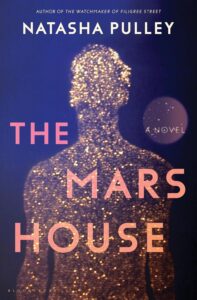
Natasha Pulley, The Mars House
Bloomsbury, March 19
Pulley (The Watchmaker of Filigree Street) turns her eyes to the future in what is already one of my favorite books of the year. A couple hundred years from now, January, the former principal ballerina of the London Ballet flees a flooding London and ends up as an undocumented immigrant on Mars. He ends up in a marriage of convenience with Aubrey Gale, a handsome, xenophobic, anti-Earther political candidate—but as January and Gale start to warm to each other, the political scene on Mars deteriorates and then an existentially threatening sandstorm descends. There’s palace intrigue, a slow-burn enemies-to-lovers plot, sassy footnotes, and also there are mammoths! It’s a total delight from start to finish. –DB
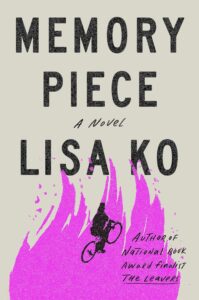
Lisa Ko, Memory Piece
Riverhead, March 19
Ko’s gorgeous debut The Leavers broke my heart in the best way, so I’m delighted to turn myself over to her latest novel, which tells the story of three childhood friends, “allied in the weirdest parts of themselves,” from the 1980s to the 90s to the 2040s. It’s an ambitious premise, and I’m especially excited to read Ko’s portrait of the near-ish future. –JG
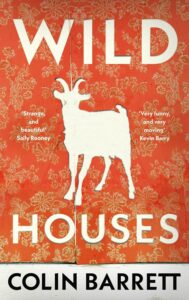
Colin Barrett, Wild Houses
Grove, March 19
Barrett is one of the most brilliant short story writers working today, with the sentence-level confidence of someone with a dozen books under his belt. His debut novel, Wild Houses, treads similar terrain as his short stories—the quiet loneliness of men and boys, the constant threat of violence, the claustrophobic world of a rural Irish town. Here, a small town drug dealer, a kidnapping, and a rescue intersect with tragic results, not to mention Barrett’s trademark verbal brilliance and deeply felt pathos. –EF
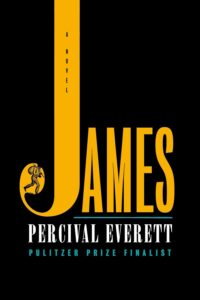
Percival Everett, James
Knopf, March 19
Everett’s 24th novel is “a harrowing and ferociously funny retelling of The Adventures of Huckleberry Finn from the enslaved Jim’s point of view.” While many narrative set pieces of Huck Finn remain (floods and storms, unexpected death and treasure, the scam artists posing as the Duke and Dauphin…), Jim’s agency, intelligence, and compassion reveal a darkness that Twain’s sentimentality could never showcase. Put this (will-be) award-winner on your TBR list. –EF
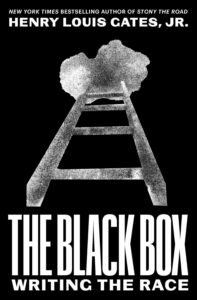
Henry Lous Gates, Jr., The Black Box: Writing the Race
Penguin Press, March 19
At once a work of literary criticism, American history, and sociocultural analysis, Gates’s Black Box—based in part on a course he teaches at Harvard—reveals the ways in which Black literature has preserved a space for a people otherwise denied freedom of movement (both literally and figuratively) in their own country. With close readings of texts by Phillis Wheatley, Frederick Douglass, W.E.B. Du Bois, Zora Neale Hurston, James Baldwin, Toni Morrison and more, Gates Jr. tells a story of survival, of Black Americans creating a “nation within a nation” and the indelible culture that goes with it. –JD
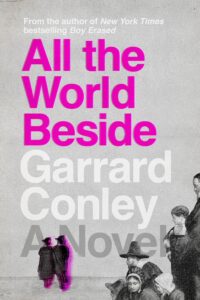
Garrard Conley, All the World Beside
Riverhead, March 26
Historical fiction buffs may have known that the Great Awakening concerned the rise in the 18th century of Protestant evangelists (I did not), who jazzed up religion somewhat from the staid old form into something more personal, more emotional, and more contingent on sinners accepting His word to avoid being burned in hell. Into this setting, Boy Erased author Conley has put New England Reverend Nathaniel Whitfield and the man, Christian physician Arthur Lyman, who falls in love with him. The stakes are high, nigh smoking, for Lyman, Whitfield, and Whitfield’s family who find themselves cast out of the community. –JM
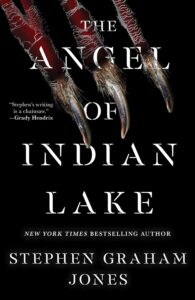
Stephen Graham Jones, The Angel of Indian Lake
Saga, March 26
Stephen Graham Jones is the absolute king of horror these days and this final installment in his Indian Lake trilogy should be a total blockbuster. Final girl Jade Daniels returns to Proofrock, Idaho after four years in prison following the end of Don’t Fear the Reaper, and the town has changed—not for the better. But one thing’s guaranteed: the curse of the Lake Witch is going to leave another trail of blood across Daniels’ life before everything is said and done. SGJ has gone all-out in this trilogy, crafting a saga of intergenerational trauma with an encyclopedic knack for horror, and this is a totally thrilling conclusion. –DB
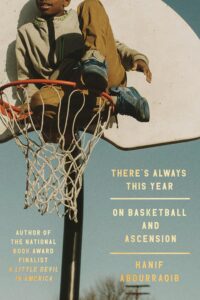
Hanif Abdurraqib, There’s Always This Year: On Basketball and Ascension
Random House, March 26
Everything Hanif Abdurraqib (A Little Devil in America) writes—music criticism, poetry, personal essays, tweets about his dog, analysis of NBA oddballs—is worth reading. The depth of insight and humanity he brings to his writing is a marvel. A lifelong basketball fan (who also happens to have come of age in Ohio during LeBron’s rise), Abdurraqib’s latest is a meditative exploration of “what it means to make it, who we think deserves success, the tension between excellence and expectation, and the very notion of role models.” If you buy it on publication day, you’ll have almost a whole month to get it finished before the playoffs start. –DS
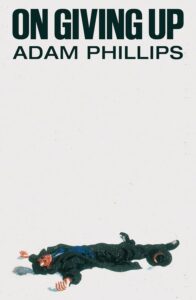
Adam Phillips, On Giving Up
FSG, March 26
It’s finally here, the book we didn’t know we needed, in which acclaimed psychoanalyst Adam Phillips tries to answer a question familiar to us all: When should we give up? Maybe it’s ok to let go of your need for closure with your cousin… And maybe it’s ok to admit you’ll never fully quit smoking… Insofar as Phillips’s project here is to pop the hood on society’s collectivized expectations of modern life, and how they affect us individually—more often than not in a negative way—this book could also be called What Really Matters. But that wouldn’t be quite so fun, would it? –JD
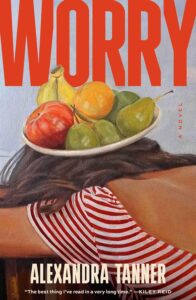
Alexandra Tanner, Worry
Scribner, March 26
Worry is within the genre of the millennial malaise lit-girl novel. It’s written in a spare and disaffected tone, about a 20-something in Brooklyn, but instead of centering around situationships and unimpressive men, this one centers another far more interesting relationship: sisterhood. Jules is living alone in Brooklyn when her younger sister, Poppy comes to stay indefinitely. They have that specific sister relationship where they both need each other desperately, and yet in some way hate each other for needing them back. It’s a microcosm of intimacy, a bond from the beginning of time that’s more real and personal than any other, and I am constantly fascinated and saddened by how we treat those we love more than anyone. Alexandra Tanner is an author to watch: she’s both funny and serious, snarky and sweet, and gives us that rare, realistic window into recognizable life. –JH
APRIL
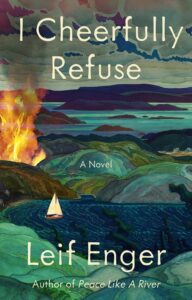
Leif Enger, I Cheerfully Refuse
Grove, April 2
“Set in a not-too-distant America, I Cheerfully Refuse is the tale of a bereaved and pursued musician embarking under sail on a sentient Lake Superior in search of his departed, deeply beloved, bookselling wife.” Honestly say no more: this book sounds funny, strange, and absolutely wonderful. –DB
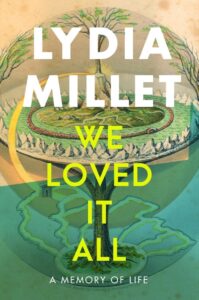
Lydia Millet, We Loved It All: A Memory of Life
Norton, April 2
This is an exciting literary event: Lydia Millet’s first book of nonfiction! Earning a place alongside the classics of conservation writing, Millet urges readers to think of themselves as part of a larger tapestry, one that has already seen countless species pushed out of existence to accommodate human concerns. Millet’s awe of nature is catching, even as it lives alongside the grief of our everyday destructions. Pre-order it now for your Earth Day reading. –ES
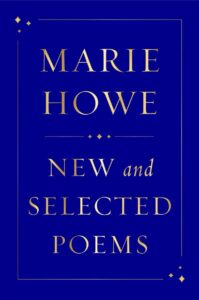
Marie Howe, New and Selected Poems
W.W. Norton, April 2
Finally, one will be able to find all their favorite Marie Howe poems in one place. In April, this new collection will encompass all four of Howe’s previous books, as well as a selection of new poetry. It’s been since 2018 when the stunning Magdalene was released that we’ve had new Marie Howe poems: a fiercely loved poet with cult classic poems such as “What the Living Do”, this will be cause for celebration for many Howe-obsessives out there, including yours truly. –JH
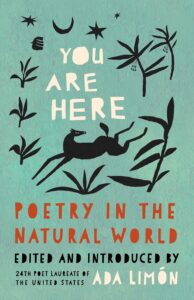
Ada Limón, ed., You Are Here: Poetry in the Natural World
Milkweed, April 2
Ada Limon, 24th Poet Laureate of the United States, is someone who’s taste in poetry I trust absolutely. Her own work is glimmering and heart-rendering, much of it in conversation with place, creatures, nature as a whole, and she has now edited a collection about just this very thing. You Are Here brings together poems that reflect on our relationship to nature, by over fifty of our most renowned poets, such as Joy Harjo, Jericho Brown, and more. With an introduction by Ada herself, this promises to be a sure delight. –JH
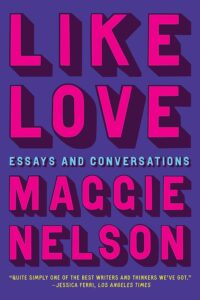
Maggie Nelson, Like Love: Essays and Conversations
Graywolf, April 2
There are a couple authors and artists out there that I am distinctly grateful to be alive alongside, and Maggie Nelson might be at the top of that list. She’s someone whose mind I trust to tackle the hard, complicated subjects of our age, as well as the long-lasting, eternal ones, like love, for example. This new book of Nelson’s is a collection of her writing on the subject, as well as interviews, conversations, and more, all from the last twenty years: a myriad and immersive look at the way this subject has been woven into her life, relationships, and work. The topic is infinitely compelling, the medium is new and different: it all makes for a stunning and integral book on the topic. I know I’ve had a quote of her’s about just this very thing rattling around in my brain since I read the interview in 2015:
Bookforum: [That reminds me of] a line from a Cassavetes film. The line is—and so, I want to ask you—Do you believe that love is a continuous stream?
Maggie Nelson: I guess the parser in me would have to ask, what do you mean by “love,” and what do you mean by “stream”? But another part of me says, right off the bat, absolutely. –JH
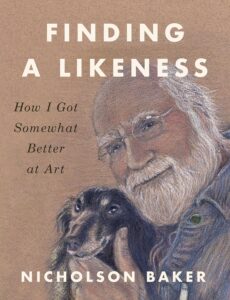
Nicholson Baker, Finding a Likeness: How I Got Somewhat Better at Art
Penguin Press, April 2
I adore an account of trying to do something for which one doesn’t have a natural aptitude. There’s nothing more human than making small amounts of incremental progress toward a skill that isn’t strictly necessary for survival. I can think of no writer whose account of spending years attempting to improve at painting I would more relish than Nicholson Baker. I have no doubt this will be a work full of charm and wisdom, in equal measure. –JG
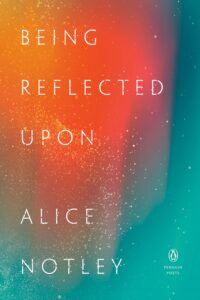
Alice Notley, Being Reflected Upon
Penguin Books, April 2
It is indeed fitting that one of America’s great poets, Alice Notley, should write a memoir in verse. (One could certainly argue that any given poet’s body of work is a kind of memoir, life as a series of moments seen and felt.) Though focused on Notley’s time in Paris from 2000 to 2017, where she underwent treatment for breast cancer, many of the poems in Being Reflected Upon move backwards in the artist’s life—her childhood in California, formative years roaming through Europe—to create a metaphysical portrait in glances, of a restless poetic consciousness concerned with life, death, and everything in between. –JD
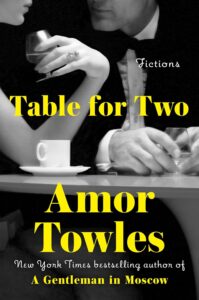
Amor Towles, Table for Two
Viking, April 2
Fair to describe Amor Towles as a master of the novel; here, he combines stories from the 2000s that touch on the “delicate mechanics of compromise that operate at the heart of modern marriages,” as well as a novella based around a character from Rules of Civility, extending the thought into the Golden Age of Hollywood. –JM
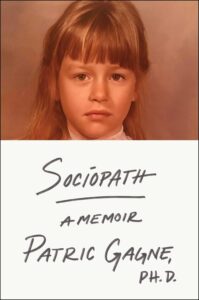
Patric Gagne, Sociopath: A Memoir
Simon & Schuster, April 2
It can feel, in the age of TikTok psychology, that sociopathy is something that only exists in AITA forums and viral Thanksgiving dinner Twitter threads, both over-ascribed and under-explored. Gagne plumbs the depths of the condition, starting from childhood, when she realized other people’s reactions to her were off. She is told by doctors that there is no treatment for the condition, and doesn’t have much hope until she connects with an old boyfriend, realizing that if she is capable of love, then perhaps there is more to her psychology than specialists had allowed for. –JM
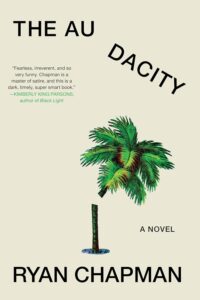
Ryan Chapman, The Audacity
Soho Press, April 2
A hilarious leap into the dark depths of the world’s wealthiest, as Guy Sarvananthan weathers the fall-out from his wife’s start-up’s Theranos-esque collapse—and decides, instead of trying to do the right thing, to fly to a private Caribbean island for a billionaire philanthropy summit. Amitava Kumar calls it “Martin Amis’s Money for really late, late capitalism” and Chapman’s sharp humor earns him that place among the master satirists. –DB
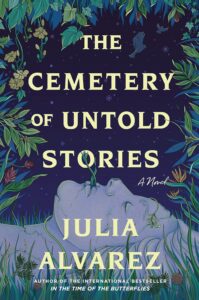
Julia Alvarez, The Cemetery of Untold Stories
Algonquin, April 2
By her own admission, Julia Alvarez never liked the role of spokesperson, but it’s hard not to think of her as one of the grand dames of a generation of American authors writing in English, or a mixture of English and Spanish, that includes Cristina García, Sandra Cisneros, and others. In her latest, Alvarez’s protagonist Alma tries to shrug off years of untold stories by literally burying them in an empty plot in the Dominican Republic, but, it wouldn’t be a Julia Alvarez novel if it was as easy as that. You just can’t keep a good ghost underground. –SR
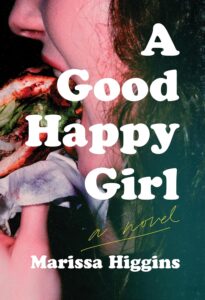
Marissa Higgins, A Good Happy Girl
Catapult, April 2
Who among us can say no to a messy queer novel? Certainly not me. When Helen, an anxious attorney struggling with her childhood trauma, starts hooking up with lesbian couple Catherine and Katrina, she thinks sex will be a good distraction from her life. But things with Catherina and Katrina quickly spiral out of control. What was once a fun hook up is now an emotional and sexual vortex. Meanwhile, Helen’s being pulled back into her family drama and forced to face her past. Any book that lets me use the phrase “sexual vortex” while describing it is definitely a great read. –MC
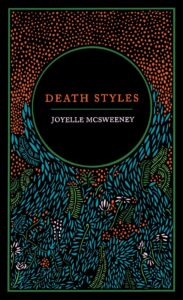
Joyelle McSweeney, Death Styles
Nightboat, April 2
In response to the death of her infant daughter, McSweeney set out to write a poem a day. With references ranging from River Phoenix, Mary Magdalene, a backyard skunk, and Terminator 2, McSweeney proposes a link between style and survival, even in the gravest of circumstances. “Death Styles navigates the opposing forces of survival and grief, finding a way to press against death’s interface, to step the wrong way out of the grave.” –EF
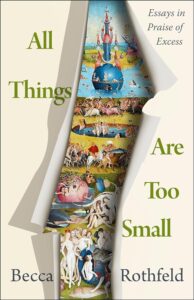
Becca Rothfeld, All Things Are Too Small: Essays in Praise of Excess
Metropolitan Books, April 2
Good rule of thumb for your internet browsing: if you see Becca Rothfeld’s byline, you should actually read the article. I’m especially looking forward to doing the equivalent of clicking on this collection of essays (please save me from this metaphor), which rejects the idea that we should all be winnowing ourselves down to our cleanest, most mindful, most decent selves, but rather embracing our darkness and wildness, both in aesthetics and in culture. Tell me about it. Bring on the excess, and bring on the muck! –ET
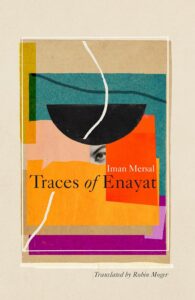
Iman Mersal, tr. Robin Moger, Traces of Enayat
Transit Books, April 2
In this “biographical detective story,” distinguished Egyptian poet Mersal traces the short life and sputtering legacy of the writer Enayat al-Zayyat, who committed suicide before her first novel was even published, and in the process, wanders through her own biography. Originally published in Arabic in 2019, Traces of Enayat won the Shaykh Zayed award in 2021, and happily comes to our shores this year. –ET
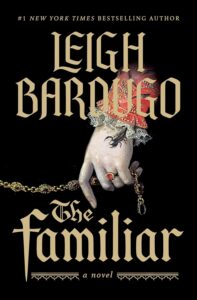
Leigh Bardugo, The Familiar
Penguin Books, April 9
I love Leigh Bardugo’s dark and twisted brain—Ninth House is the best adult fantasy novel I’ve read in a long, long time—so will I follow her to a historical fantasy novel set in the Spanish Golden Age, featuring a servant versed in minor miracles and an immortal familiar? In a heartbeat. –ET
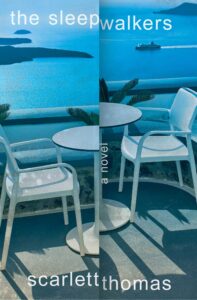
Scarlett Thomas, The Sleepwalkers
Simon & Schuster, April 9
I’ve no idea why Scarlett Thomas isn’t more widely read on this side of the pond—her writing is consistently funny and weird and crystalline. I’ll read pretty much anything she writes, but I’m especially excited for this latest novel, which is set on a Greek island and being pitched as Patricia Highsmith meets White Lotus. Um, yes please. –ET
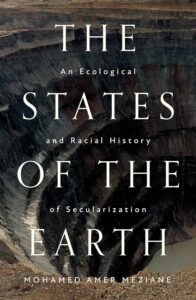
Mohamed Amer Meziane, The States of the Earth: An Ecological and Racial History of Secularization
Verso, April 9
It is not hard, when looking at the big picture, to draw a line from the Industrial Revolution to 19th-century global colonialism to post-war consumer capitalism, and right on through to the current climate crisis. But things get a little more complicated the closer you look. With The States of the Earth, Mohamed Amer Meziane zeroes in on the half-life of western secularism, investigating the centuries-long fallout of replacing one kind of religion with another: racialized capitalism. –JD
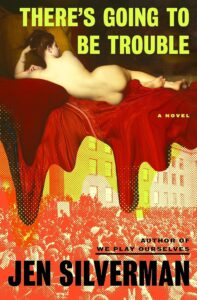
Jen Silverman, There’s Going to Be Trouble
Random House, April 9
Fresh off her latest celebrated play (Spain), Silverman returns to fiction with two entwined stories of love and activism. Set both in the 60s and the present, There’s Going to Be Trouble makes personal that old adage about how not knowing history makes you doomed to repeat it, when a woman discovers that her father wasn’t always the private and demure man he is now but rather caught up in the swirl of the late 60s and the protests against Vietnam. –DB
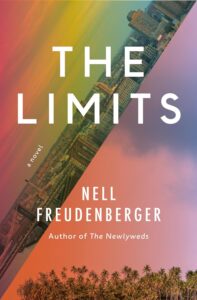
Nell Freudenberger, The Limits
Knopf, April 9
The celebrated Freudenberger’s latest, after her grief-and-science novel Lost and Wanted, is a COVID-and-climate-change book, bringing a precocious and rebellious teen together with her schoolteacher stepmother and one of her stepmother’s teen-parent students for a luminous look at the pandemic era and what it taught us about intimacy. –DB
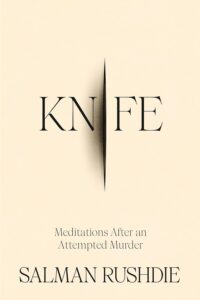
Salman Rushdie, Knife
Random House, April 16
Salman Rushdie spent a bleak decade in hiding across the UK and the US after the Ayatollah Khomeini declared a fatwa in 1989 following the publication of The Satanic Verses. Some thirty years later, Rushdie found himself in a much improved position: he attended literary events, and from time to time he’d pop up in Brooklyn bars. So the fact that he was stabbed ten times on-stage in 2022, while speaking on a panel about the US as a safe-haven for exiled writers, continues to shock. Billed as a series of “meditations on an attempted murder” here Rushdie addresses the attack and its aftermath for the first time at length. –SR
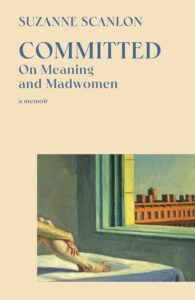
Suzanne Scanlon, Committed: On Meaning and Madwomen
Vintage, April 16
I’m a terrific fan of Janet Frame, and her own accounting of her “madness” leads you to believe there must be more to the brilliant minds afflicted with psychiatric pain. Scanlon uses her own experience being committed after her mother’s death to launch an investigation into the idea of the madwoman as a portkey. She delves into the work of Frame, Sylvia Plath, Virginia Woolf, Audre Lorde and other great thinkers labeled as mad women. –JM
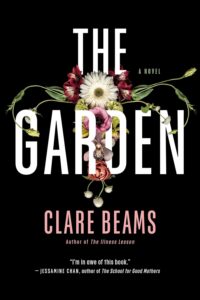
Clare Beams, The Garden
Doubleday, April 19
In 1948, Irene Willard retreats to an isolated house-cum-hospital in the Berkshires, run by a husband-and-wife team of doctors who are pioneering a cure for infertility. A secret garden with unknown powers can give these women everything, but in a page-turning, horror-infused turn, everything begins to crumble. Shirley Jackson meets The School for Good Mothers in Beams’s careful, beautiful prose. –EF
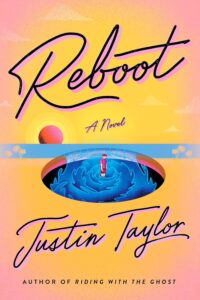
Justin Taylor, Reboot
Pantheon, April 23
In what sounds like a mash-up of Bojack Horseman and the January 6 insurrection, Justin Taylor’s latest novel sees a washed-up former child star try to get his old show rebooted—because who doesn’t love a bit of nostalgia?—while America slouches towards dissolution. Taylor is a fantastic critic with three novels and a memoir under his belt already, and this might be a strong contender for the emblematic novel that conveys the feeling of what it’s like to be online and alive at the same time. –SR
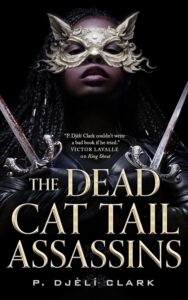
P. Djélì Clark, The Dead Cat Tail Assassins
Tordotcom, April 23
After an assassin job goes bad for Eveen, she has until the sun comes up to save her soul—and so a race across a festival-mad fantasy city ensues. Perfectly pitched to be read in just a couple sittings, Clark masterfully spins up an entire world and sprints through a swashbuckling plot without ever sacrificing character or nuance. Nobody does a Tordotcom novella quite like Clark: he’s an absolute master of the form, and this is no exception. –DB
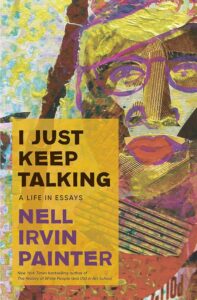
Nell Irvin Painter, I Just Keep Talking: A Life in Essays
Doubleday, April 23
Nell Irvin Painter is an essential critical voice who has written brilliantly about art, race and racism, identity, politics, and more. This collection of her essays—which also includes her own artwork—is a gripping and complex read. You’ll come away with a greater understanding of American history, Ralph Waldo Emerson, and Painter herself (among many other subjects). Something I rarely find myself saying about an essay collection: It’s a thrill from start to finish. –JG
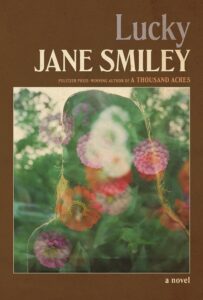
Jane Smiley, Lucky
Knopf, April 23
Lucky begins, like so many of Smiley’s novels, in the midwest, where Jodie Rattler grew up surrounded by a loving family before chasing her dream of becoming a singer to New York City. As Jodie gets closer to her dream, in the shadows of Joan Baez and Joni Mitchell, she has to decide if it’s the right dream. –JM
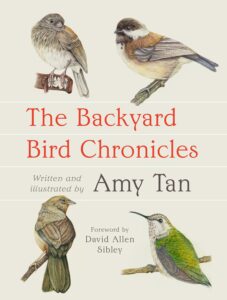
Amy Tan, The Backyard Bird Chronicles
Knopf, April 23
Simply add this to my pile of Margaret Renkl, Freida Hughes’ George, and Jenny O’Dell’s rendezvous with Crowson. If you promise me a witty birder book—birds as windows on life!!!—then great, and if the great Amy Tan is writing it, even better. The perfect antidote (with illustrations!) to whatever these past few years have been. –JM
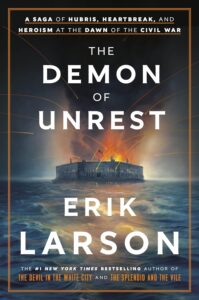
Erik Larson, The Demon of Unrest: A Saga of Hubris, Heartbreak and Heroism at the Dawn of the Civil War
Crown, April 30
One of the kings of narrative non-fiction turns his gaze to the five months between the election of Abraham Lincoln and the shelling of Fort Sumter that kicked off the Civil War. Lincoln and William Seward are major characters, as are lesser-known names like Major Robert Anderson, Edmund Ruffin, and Mary Boykin Chesnut—giving the book both a pulse-pounding political thriller quality and an on-the-ground look at life in a dangerously unsettled America. Warning: you might see some parallels to the present, and Larson urges you not to look away. –DB
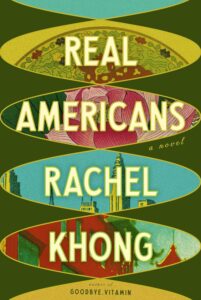
Rachel Khong, Real Americans
Knopf, April 30
I was a big fan of Goodbye, Vitamin, so I was thrilled to hear Rachel Khong has a new release upcoming—this one is different and heftier sounding than Vitamin, in that it spans three generations of a family, each attempting to understand their place within the family, and within the world they’ve been born into. By encompassing a family as a whole, the novel asks big questions about our lineage and futures, how much is really up to us, whether the fact of our pasts guarantee our fate, or whether we have agency over the lives we live. –JH
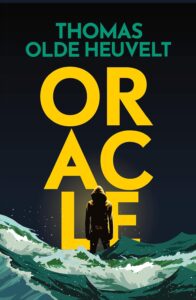
Thomas Olde Heuvelt, Oracle
Tor Nightfire, April 30
Olde Heuvelt’s Hex is one of the scariest books I’ve ever read, and apparently he’s bringing back that book’s supernatural investigator Robert Grim for another go-round, this time investigating a sailing ship that somehow ended up stranded in a field and with a propensity for disappearing those who climb aboard. If it’s half as scary as Hex, it’ll be worth reading during the brightening spring evenings instead of saving for the darker months. –DB
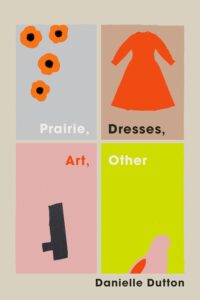
Danielle Dutton, Prairie, Dresses, Art, Other
Coffee House Press, April 24
The co-founder and editor of Dorothy, a publishing project, Danielle Dutton’s new book is “a haunting landscape of wildflowers, megadams, black holes, violence, fear, virtual reality, abiding strangeness, and indefinable beauty.” This is a book that defies categorization—a collection of stories, literary criticism, an essay on visual art and fiction, and stories-as-essays or essays-as-stories. I still think about Dutton’s novel Margaret the First, which was published almost a decade ago, and anticipate that this is one everyone will be talking about. –EF
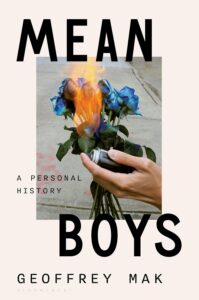
Geoffrey Mak, Mean Boys
Bloomsbury, April 30
“Edgelords all the way down” must have been a tempting subtitle for this collection of essays from Geoffrey Mak, one of my favorite contributors to Spike Art Magazine. Fortunately, there’s more to it than that: memoir meets cultural critique as Mak explores everything from the commodification of queer spaces to memes to fashion, and his youth as the gay son of an evangelical minister. –SR
MAY
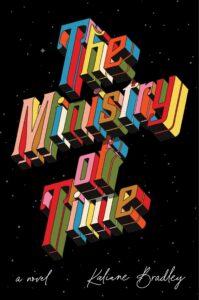
Kailane Bradley, The Ministry of Time
Avid Reader Press, May 7
This much-hyped genre-bending (time travel/romance/spy thriller/workplace comedy) debut—in which a civil servant of the future is tasked with babysitting a 19th century explorer, and of course falls in love with him—sounds like a hell of a lot of fun. Also, not for nothing, but this book has blurbs from writers as disparate as Eleanor Catton, Emily Henry, and Max Porter, which is intriguing on its own. Will be reading. –ET
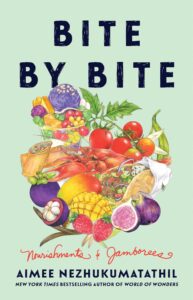
Aimee Nezhukumatathil, Bite By Bite
Ecco, May 7
Lyrical essays about food? I’ll have seconds. In Bite by Bite, Aimee Nezhukumatathil looks at how food shapes our identities, focusing on minor miracles like rambutan, shaved ice and who knows what other delights. Nezhukumatathil is a professor of English and creative writing in the University of Mississippi’s MFA program, and this looks like just the thing for Vittles fans. –JM

Lilly Dancyger, First Love: Essays on Friendship
Dial Press, May 7
Any work that treats friendship as a weighty and valued thing, rather than second fiddle to romantic relationships, will always be on my TBR pile. The concept of this new book reminds me of the beautiful Atlantic article on best friendship from 2020 that felt revelatory and radical in its centering of female friendships over any other kind of relationship. Lilly Dancyger gives the proper due to each of her primary female friendships, each essay dissecting a certain friendship, as well as braiding in literary and cultural analysis. Every book and article like this shows me that we’re on a path to understanding friendship in a new light, and I know I’m only grateful to witness the carving of that path, thanks to people like Lilly Dancyger. –JH
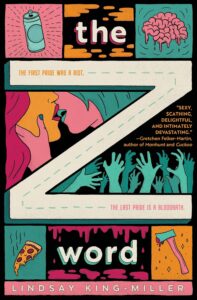
Lindsay King-Miller, The Z Word
Quirk Books, May 7
“The first Pride was a riot, the last Pride is a bloodbath” goes the cover quote and King-Miller’s debut is going to be kick-ass. It’s about a chaotic bisexual and her group of friends/lovers/frenemies from the queer scene in an Arizona town struggling to save Pride and stop a zombie plague from breaking out—heartfelt, heart-warming, and heart-eating. –DB
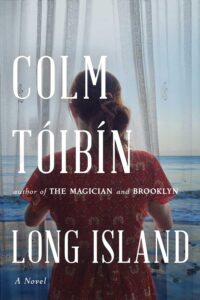
Colm Tóibín, Long Island
Scribner, May 7
Colm Tóibín, inarguably one of Ireland’s greatest living writers, has penned plenty of successful novels, but none have had a greater cultural impact 2009’s Brooklyn, which was nominated for a clutch of top tier literary awards before being adapted into a Major Motion Picture starring Ireland’s favorite daughter, Saoirse Ronan. Fifteen years on from our first introduction to Eilis Lacey, we’re now getting a sequel, set in the Spring of 1976 on the titular island where a now-fortysomething Eilis lives with Tony and their two teenage children. One day, while Tony is out at work, a mysterious Irishman comes to the door to tell Eilis that his wife is pregnant with Tony’s baby, and that he (the mysterious Irishman) intends to leave the child on Eilis’ doorstep as soon as it’s born. –DS
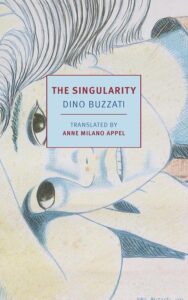
Dino Buzzati, trans. Anne Milano Appel, The Singularity
NYRB Classics, May 7
A new translation of this seminal work of Italian science fiction, about a Cold War-era professor sent on a secret mission to an isolated research center where he assumes he’ll be working on nuclear weapons, but discovers instead that he and his colleagues are working on the very nature of consciousness. Another classic work predicting the dangers of artificial intelligence and human hubris? They never stop being timely! –DB
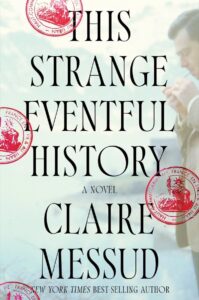
Claire Messud, This Strange Eventful History
W.W. Norton, May 14
There are few genres more enjoyable than the sprawling, decade-spanning family saga (especially in the hands of a brilliant novelist). Claire Messud’s latest novel tells the story of an Algerian-born French family from 1940 through 2010 as they navigate personal and political upheaval. Yiyun Li calls it “a tour de force… one of those rare novels which a reader doesn’t merely read but lives through with the characters.” Sold. –JG
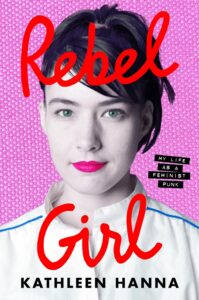
Kathleen Hanna, Rebel Girl: My Life as a Feminist Punk
Ecco, May 14
Kathleen! Hanna! Memoir! Get ready for the story of the 90s punk rock scene told through the badass Bikini Kill and Le Tigre frontwoman, the heart of the Riot Grrrl movement, which she documents in an “uncut voice all her own…Hanna reveals the hardest times along with the most joyful—and how they continue to fuel her revolutionary art and music.” –EF
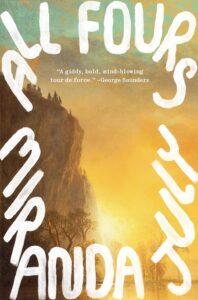
Miranda July, All Fours
Riverhead, May 14
This is a gut-punch of a novel, a must-read for every woman nearing or over forty, confronting the malaise of midlife, fertility, marriage, and menopause, packaged in July’s delirious style. The publisher judiciously describes “July’s wry voice, perfect comic timing, unabashed curiosity about human intimacy, and palpable delight in pushing boundaries…” and calls All Fours “one woman’s quest for a new kind of freedom.” But it’s also an absolute excavation of what it means to be a woman in the world. –EF
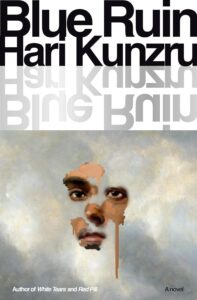
Hari Kunzru, Blue Ruin
Knopf, May 14
A covid-era novel about Jay, once-promising artist-turned-gig worker living out of his car invites his ex-girlfriend’s invitation to isolate with her, her boyfriend (and Jay’s former friend) along with an erratic gallery owner and his girlfriend, Kunzru’s novel promises to be harrowing and darkly funny. Kunzru has a knack for the nightmarish present, and few things feel more nightmarish than a forced confrontation with the past in the early stages of the pandemic. –JG
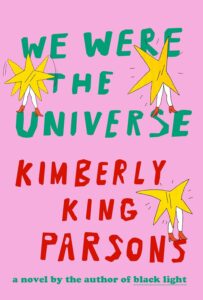
Kimberly King Parsons, We Were the Universe
Knopf, May 14
In Kimberly King Parsons’s much anticipated follow-up to her 2019 story collection Black Light (longlisted for a National Book Award), a young mother, Kit, navigates life in the aftermath of youthful expectation, finding herself caught in increasingly vivid reminiscences of past glories. But after an attempted adventure with an old friend misfires, Kit’s flights of imagination cross the line from nostalgia to projection, and it becomes harder and harder to distinguish what was, what is, and what might be. –JD
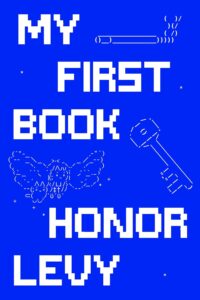
Honor Levy, My First Book
Penguin Press, May 14
The bluntness of this title feels like an apt entry for Honor Levy into the mainstream publishing scene: she’s one of those writers I’ve been hearing about for years, reading her various essays and stories, and in my mind, she will always be 24. She’s been touted as the “voice of Gen Z” for some years now, and managed to make a name for herself before she even has a book out. Someone who can do such a thing is always one to watch, and the anticipation has been growing for Levy’s “First Book” for a long time. Finally, her collection of short stories about growing up in the digital age will be released in May: they promise to be ironic and poignant and funny and faith-seeking in a collapsing world. –JH
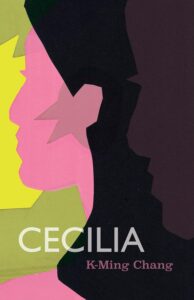
K-Ming Chang, Cecilia
Coffee House Press, May 21
If you’re not reading K-Ming Chang, then what are you reading? Chang should be on everyone’s auto-read list. Plus, Cecilia is a novella. That’s the best type of book. This novella follows two adult women meeting for the first time since childhood. Their interaction sparks a surreal cascade of girlhood memories about desire, queerness, and obsession. Cecilia is at once erotic and repulsive, carnal and tasty. In a word: delicious. –MC
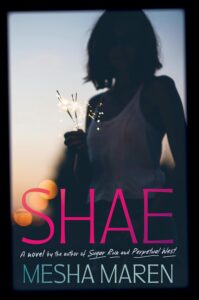
Mesha Maren, Shae
Algonquin Books, May 21
In the latest novel rom the author of Sugar Run, sixteen-year-old Shae falls in love with Cam, a newcomer to her West Virginia town—but after Shae winds up pregnant, Cam begins transitioning, and once the baby is born, Shae begins to depend on the opioids that once helped manage her pain. “Maren brilliantly gives voice to a New South, introducing us to two unforgettable characters whose journeys echo the struggles of queer people across the country,” wrote Garrard Conley. “This book is essential for the new queer canon emerging from Southern writers.” –ET
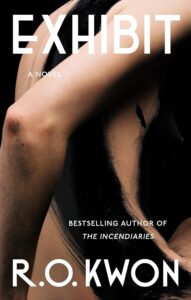
R.O. Kwon, Exhibit
Riverhead, May 21
This sophomore novel from the blazingly talented Kwon (The Incendiaries) sounds absolutely fascinating. Billed as “a haunting and powerful exploration of art, racism, feminism, and desire” (Madeline Miller), Exhibit is the story of a brilliant young San Francisco photographer, at a crossroads in both her work and marriage, who meets, and becomes entangled with, an injured world-class ballerina, to whom she reveals a long-buried family curse. –DS
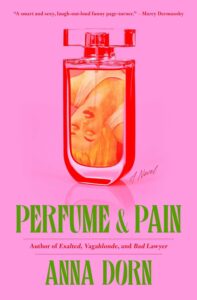
Anna Dorn, Perfume and Pain
Simon & Schuster, May 21
I actually don’t think I can do Dorn justice describing the book without just using the promotional copy here—talk about character-writing: “mid-list author Astrid Dahl finds herself back in the Zoom writer’s group she cofounded, Sapphic Scribes, after an incident that leaves her and her career lightly canceled,” starts dating Ivy, who is a student researching 1950s pulp lesbian novels, but at the same time Astrid feels a strange attraction to Penelope, a “painter living off Urban Outfitters settlement money.” Must know what Dorn is up to here. –JM
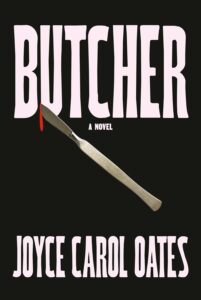
Joyce Carol Oates, Butcher
Knopf, May 21
If you guessed that the title referred to the “father of gyno-psychiatry,” Dr. Silas Weir, you’d be right. Here, JCo takes this very real nightmare of a person and knits together a story about a young Irish servant who becomes Weir’s “subject,” but also the object of his downfall (huzzah!). Sounds like the perfect American novel, delving deep into the horrors of invention. –JM
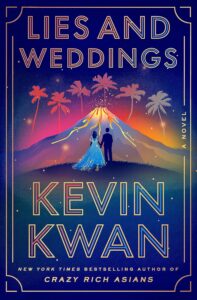
Kevin Kwan, Lies and Weddings
Doubleday, May 21
Herein, a comedy of manners on a tropical island, concerned with one man’s quest to find a rich woman to marry. The man is Rufus Leung Gresham, future Earl of Greshambury and son of a former Hong Kong supermodel. The women? A French hotel heiress with a royal bloodline and a girl-next-door with no money to speak of (but all that chemistry). It’s Kevin Kwan so you know it will be entertaining. –JM
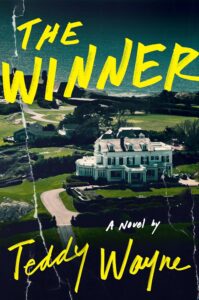
Teddy Wayne, The Winner
Harper, May 28
No one writes male characters (and their flaws) like Teddy Wayne, and this thriller about the Cape Cod elite looks like a promising addition to his oeuvre. Conor O’Toole, working-class man, has free summer accommodation at a gated community in return for tennis lessons, but finds his debt is mounting. When a divorcée offers him an especially LARGE fee, he volleys himself into a steamy affair, despite crushing on an artsy girl from the beach, finding himself trapped in a web of his own lies. Since Wayne is scathing in his satire, we must brace ourselves for a dagger late in the novel, which happens to resemble the plot of Aspen Extreme (a tick in its box). –JM
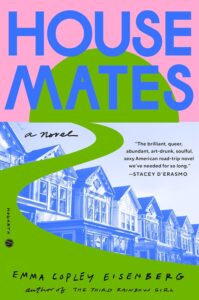
Emma Copley Eisenberg, Housemates
Hogarth, May 28
Bernie, an aspiring photographer, and Leah, an aspiring writer, become friends through a housemate-wanted ad. Eisenberg sets them off on a road trip in search of a strange inheritance Leah receives from a professor. Bernie is along for the ride to document the characters out on the road, and it is, per a blurb from our resident advice columnist Kristen Arnett, a “wholly, queerly complex” story. –JM
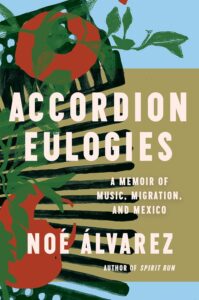
Noé Álvarez, Accordion Eulogies: A Memoir of Music, Migration, and Mexico
Catapult, May 28
Migration can be in the near past without your knowing exactly the path your family took. For Noé Álvarez, a Mexican-descendent American who grew up in a notch of Washington State’s Cascades, the only thing he knows about his grandfather in Mexico is that he played the accordion. The rest has been lost, possibly due to a curse. So he starts where he can: Noé takes up the accordion, traveling across the continent to meet other players and understand its significance. –JM
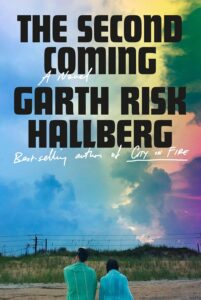
Garth Risk Hallberg, The Second Coming
Knopf, May 28
Nine years on from the publishing event that was City on Fire comes another family epic, this time about a recovering addict ex-con and his estranged daughter across the US and the decades at the turn of the recent millennium. Expect a sprawling cast and another Dickensian attempt to put the entirety of the human experience onto the page, with stirring results. –DB
JUNE
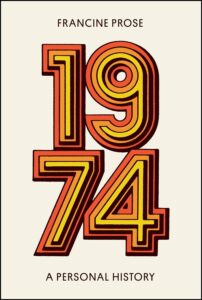
Francine Prose, 1974: A Personal History
Harper, June 4
Francine Prose’s first foray into memoir should be a memorable one: it’s about her tumultuous relationship with Anthony Russo, one of the Pentagon Papers leakers, and how it helped her see the end of the idealist ‘60s. Prose is always thoughtful and tenacious in her writing, and we expect nothing less from her turning her eye inward. –DB
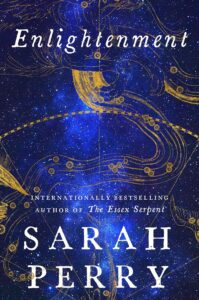
Sarah Perry, Enlightenment
Mariner Books, June 4
The latest novel from the author of The Essex Serpent follows an unlikely pair of friends over twenty years, as they are brought apart and also together by their affairs and obsessions—in large part the obsession one of them has with the ghost of a nineteenth-century astronomer. Perry is a lush, rich writer, and no doubt this will be another book of spells. –ET
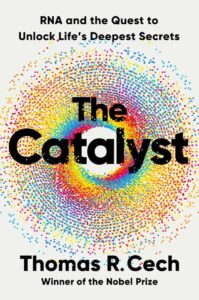
Tom Cech, The Catalyst: RNA and the Quest to Unlock Life’s Deepest Secrets
W.W. Norton, June 4
For brains of a mortal frequency, RNA may have only popped into consciousness with the groundbreaking introduction of COVID-targeting mRNA vaccines and CRISPR therapies. In the telling of Nobel Prize-winning scientist Tom Cech, RNA was long the sidelined brother of DNA, with its showy double helix. Thanks to work by Cech and others, the power of RNA to impact aging and catalyze biochemical reactions is made apparent. –JM
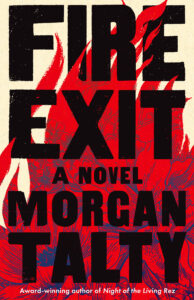
Morgan Talty, Fire Exit
Tin House, June 4
A river divides Charles Lamosway from the life he might have had. On the other side of the river that runs in front of his house, Charles has watched his community in the Penobscot Reservation change, watched time pass, and watched a young family raise their daughter. The whole time, he’s been keeping a secret. The couple’s daughter is actually his. As his home and family life begin to crumble around him, Charles is forced to deal with the many burdens he’s spent his life carrying. Talty’s debut novel Fire Exit is tender, sparse, and thoughtful. –MC
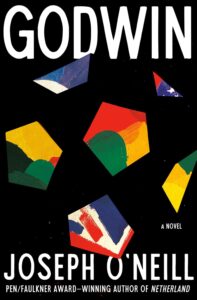
Joseph O’Neill, Godwin
Pantheon, June 4
One of the delights of O’Neill’s fiction is that the characters move. They’re on planes, traveling, interacting, and much more in the world than are the characters in so much contemporary fiction. In his new novel, two brother cross the world in search of Godwin—an African soccer prodigy—who might change their fortunes. Here, the legacy of colonialism and global capitalism appear in the context of family love, and the dreaming individual. –EF
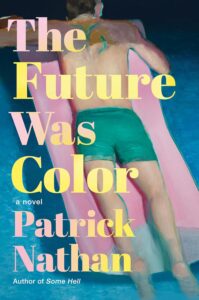
Patrick Nathan, The Future Was Color
Counterpoint, June 4
In 1950s Hollywood, Hungarian immigrant George Curtis is powerless, working as a hack on monster movies, before he is taken in by a famous actress who lets him stay at her Malibu mansion provided she can show him off. George may have left the war behind, but the monsters pursue, starting with his own ditched identity as György, a queer Jew. –JM
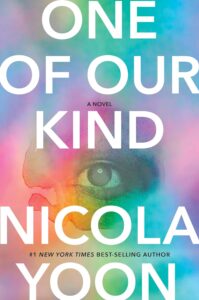
Nicola Yoon, One of Our Kind
Knopf, June 11
The best-selling YA author makes her adult debut with a thriller about the terrible secrets that underpin a new utopian Black community in California. Frankly, they had me at the logline: “Get Out meets The Stepford Wives.” Plus, it continues the Knopf-pastel-sky cover trend! –DB
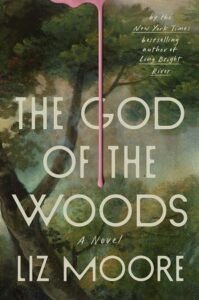
Liz Moore, The God of the Woods
Riverhead, June 11
Liz Moore’s knotty literary thriller/psychological family portrait/examination of the anatomy of a city Long Bright River was one of the standout novels of 2020, so I was pleased to see that her latest offering, The God of the Woods, looks to be cut from similar cloth. Set in the summer of 1975, it’s the story of Barbara Van Laar—the thirteen-year-old daughter of one of the region’s wealthiest families—who vanishes from her Adirondack summer camp, and of the buried secrets of both the troubled Van Laar family and the working-class community that operates in its shadow. –DS
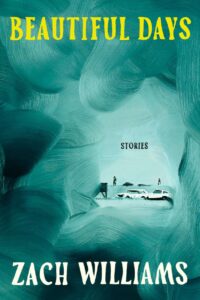
Zach Williams, Beautiful Days
Doubleday, June 11
If you haven’t read Zach Williams’ haunting New Yorker story “Wood Sorrel House,” go read it now—that way, won’t have to explain how excited you should be about Williams’ debut collection. I expect it will be strange, nightmarish, and unsettlingly magical, with a razor-sharp wit. According to Samantha Hunt, “You will come through changed, shaken, thoughtful, and totally amazed.” –JG
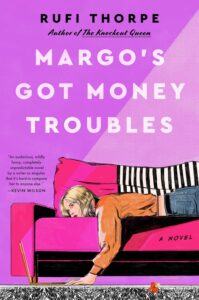
Rufi Thorpe, Margo’s Got Money Troubles
William Morrow, June 11
The critically acclaimed Rufi Thorpe feels woefully under-read to me, but something tells me her latest novel will right that wrong—and not only because A24, the coolest movie studio of them all, won a bidding war for the rights to adapt it before we even got our hands on it. Twenty-year-old Margo is the mom of a newborn and the daughter of a Hooters waitress who becomes an OnlyFans sensation by taking career/writing advice from her estranged dad, a former pro wrestler. As the Love Island contestants like to say, it checks all the boxes for me, mate. –ES
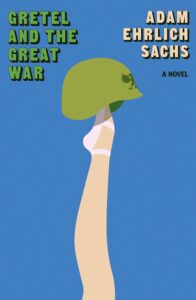
Adam Ehrlich Sachs, Gretel and the Great War
FSG Originals, June 11
I loved Sachs’s 2019 debut novel, The Organs of Sense, which managed to be both madcap and cerebral, both absurd and serious, both human and surreal; I’ll now happily read anything he writes. In the latest novel, an unknown woman’s past is pieced together (maybe) through a barrage of stories. “Think Mary Poppins’s satchel, think one deranged matrioshka constantly coming out from under another,” writes Camille Bordas. “Gretel and the Great War is the gift that keeps on giving.” Lucky us. –ET
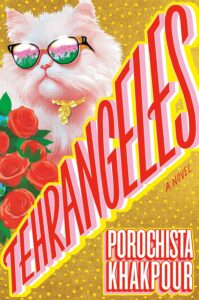
Porochista Khakpour, Tehrangeles
Pantheon, June 11
Even if I wasn’t already a fan of Khakpour and her work, this cover alone would get me—and if not the cover, the description: this is a novel about a family of Iranian-American multimillionaires who are about to become the next Kardashians (read: they’re getting a reality show), but might not be ready for the scrutiny that will come with it. Uh oh! Khakpour excels at the double edged coin of humor and tragedy; I can’t wait to read this. –ET
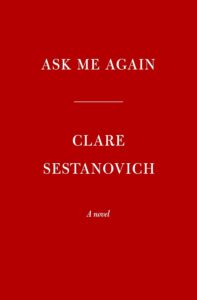
Clare Sestanovich, Ask Me Again
Knopf, June 11
The two main characters in Ask Me Again are opposites: Eva is a middle-class achiever from south Brooklyn. Jamie is a wealthy Upper East Sider experimenting with political movements and spiritual quests. Previously, Sestanovich’s short story collection Objects of Desire was a finalist for the PEN/Robert W. Bingham Prize. –JM
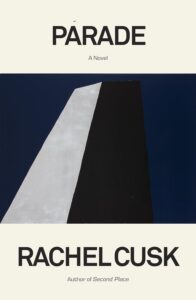
Rachel Cusk, Parade
FSG, June 18
There isn’t much more one needs to say other than “Rachel Cusk has a new novel out” to get someone excited about a Cusk book: that name carries its own weight and mutual understanding. Even if we don’t know exactly what’s coming, we know it’s going to be wildly unique, spare, gorgeous, totally new in its form. The most recent books that have come from Cusk’s mind have been the Outline series, and Second Place, books that were such different projects from one another that they have made it clear that whatever you’re expecting: accept defeat now, it won’t be that. This one will be about art, and storytelling, victimhood, and freedom, and no matter what: it’ll be different, and better, than whatever we’re expecting. –JH
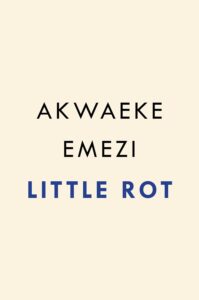
Akwaeke Emezi, Little Rot
Riverhead, June 18
The latest novel from the super-prolific Emezi is set in the dark underbelly of a Nigerian city, where five friends suddenly find themselves aswirl—and in danger. You can always trust Emezi to go there—wherever there might be—so I’m looking forward to getting swept away by this one. –ET
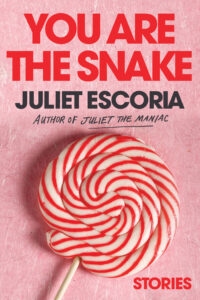
Juliet Escoria, You Are the Snake
Soft Skull, June 18
Escoria’s autofiction novel/memoir Juliet the Maniac impressed critics with its heft, rocketing off course through a mental health episode that included drug abuse, self-harm and a therapeutic boarding school. In her new short story collection, You Are the Snake, she’s exploring more girlhood terrain. –JM
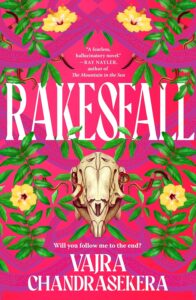
Vajra Chandrasekera, Rakesfall
Tor Books, June 18
The Saint of Bright Doors was one of my favorite books of 2023 and I’m eager for Chandrasekera’s follow-up, an eons-spanning novel about two souls reincarnating across generations. It’s guaranteed to include some incisive political commentary, ebullient imagination, and a powerful love for (and willingness to mess with) the very idea of story. –DB
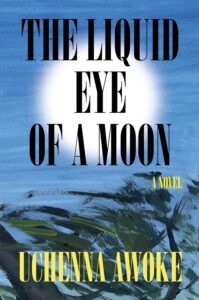
Uchenna Awoke, The Liquid Eye of a Moon
Catapult, June 25
This might be billed as a kind of Nigerian Catcher in the Rye, but Dimkpa, the fifteen-year-old protagonist of Awoke’s début novel, is nothing like the cosmopolitan elite he observes from up close as a house boy in Lagos, after making the long journey from his village in rural Nigeria. Deeply committed to class and the clash of tradition with modernity, The Liquid Eye of a Moon is a typically messy but also stoic coming of age story without any of Holden Caulfield’s phony fussing. –SR
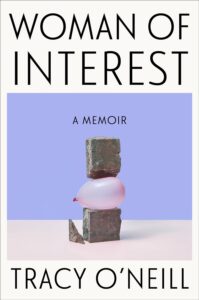
Tracy O’Neill, Woman of Interest: A Memoir
HarperOne, June 25
The first work of nonfiction from National Book Foundation 5 Under 35 honoree O’Neill (Quotients) is a psychological detective story about the author’s journey to find her missing birth mother—a mysterious South Korean woman whom O’Neill had never met and about whom she knew nothing. It’s a quest which features “a femme fatale of unique proportions, a former CIA operative with a criminal record, and a dogged investigator of radical connections outside the nuclear family.” I adore O’Neill’s writing—which is always probing and cerebral, lyrical and humane—and I cannot wait to get my hands on this one. –DS
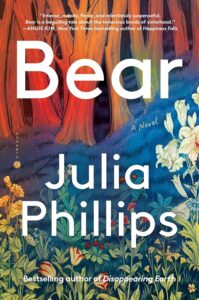
Julia Phillips, Bear
Random House, June 25
I read Julia Phillips’ debut novel Disappearing Earth when it came out nearly five years ago, and it has lingered in my mind more than most others. Phillips is brilliant at balancing sharply-drawn characters with finely woven plot and unnerving atmosphere, and Bear, which tells the story of two sisters whose lives are upended by the appearance of a mystical (yes) bear sounds like the perfect showcase for her considerable gifts. –JG
AND BEYOND
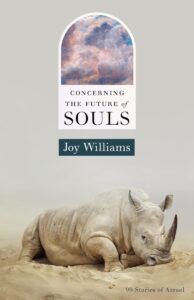
Joy Williams, Concerning the Future of Souls
Tin House, July 2
Joy Williams has been ringing the bell of concern over our fate as humans for a while now: she is worried, and this is putting it mildly, about our neutrality over the planet, with how fully we have released responsibility for our actions to our world, to each other. This is clear in each of her published works these days, and I’m sure we will witness this fear and sadness in stories such as these, that concern Azrael, the transporter of souls, as he must go about his job and face Death itself. Hard and harrowing, beautiful and devastating, Joy Williams is always toeing these lines as she too confronts the hard job she has: giving cries of warning, looking Death in the face. She’s the story writer of our time, choosing to shine light on the wreckage and the difficult choices that lay ahead: all we have to do is listen. –JH
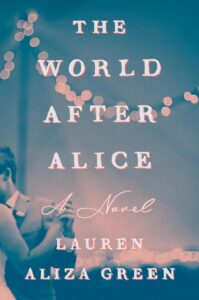
Lauren Aliza Green, The World After Alice
Viking, July 2
Lauren Green is a poet and a debut author (of Forbes 30 Under 30 fame) with a much-heralded title coming this July. The World After Alice is about the death of a girl named Alice and a wedding that takes place twelve years later. Alice’s brother, Benji, is marrying her best friend, Morgan, and the families must come together and confront their rocky and devastating past while attempting to celebrate and seek joy in the union. With betrayals and grief and secrets all threatening to interrupt the wedding weekend, The World After Alice is a juicy and emotional read that surprises as much as it entertains. –JH
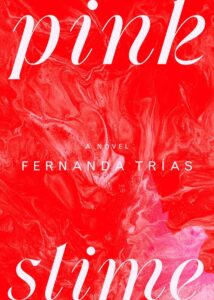
Fernanda Trias, trans. Heather Cleary, Pink Slime
Scribner, July 2
Mentioned in last summer’s New York Times piece on the new wave of Latin American science-fiction, the US debut of this celebrated Uruguayan writer (Charco Press brought The Rooftop out in the UK in 2021) is sure to delight genre readers looking for the far edges of the form. Full of melancholy and anger, it follows one woman’s attempts to survive an increasingly poisonous modern world full of plagues, algae, and corporate food-paste. –DB
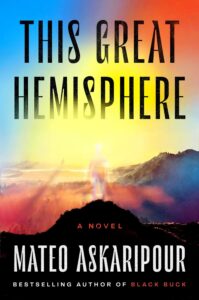
Mateo Askaripour, This Great Hemisphere
Dutton, July 9
Askaripour’s speculative epic about a young woman trying to find her brother across an entire hemisphere sounds like something from a 21st Century Jules Verne: Dominant Populations and second-class ‘invisibles’, ambitious politicians, eccentric inventors, palace intrigue, and obvious real-world parallels. If Askaripour’s debut (Black Buck) is any indication, it’s probably got a healthy dose of skewering humor to it, too. –DB
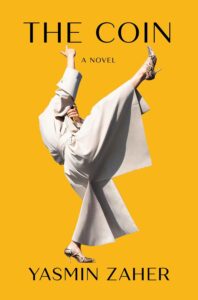
Yasmin Zaher, The Coin
Catapult, July 9
Basically I was all-in on this one from the moment I heard that a major plot point sees the protagonist, a chic, well-heeled Palestinian woman, drawn into a fake Birkin bag scheme with a homeless swindler in New York. This is a very stylish novel that manages to broach class and statelessness with tact and humor, while also touching on beauty, sex, love and the nature of civilization itself, all from a Palestinian debut novelist. –SR
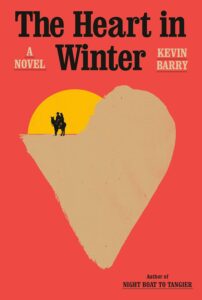
Kevin Barry, The Heart in Winter
Doubleday, July 9
As I’m sure I’ve mentioned on this site before, I am a proud Kevin Barry completist. Always wild and lyrical, poignant and profane, Barry—who has been racking up awards and apostles at a steady clip these past fifteen years—has written three novels and three short story collections, and there genuinely isn’t a dud in the bunch. His latest, and first set in the New World, is a western (!) about a pair of young lovers—a degenerate Irish poet and the new bride of an extremely devout mine captain—in flight from a posse of “deranged Cornish gunmen” in 1890s Montana and Idaho. Just hook it to my veins. –DS

Laura Van Den Berg, State of Paradise
FSG, July 9
How Laura Van Den Berg has managed to write so many superb, eerie, thought-provoking works of literary fiction before the age of 40 I will never know (her haunted, Havana-set meditation on sorrow and longing, The Third Hotel, is a particular favorite of mine). Her sixth book, billed as a “fun house of uncanniness hidden in Florida’s underbelly,” is the story of a ghostwriter for a famous thriller author who returns to the South Florida town of her childhood, where she must reckon with her mother’s burgeoning cult, her mercurial sister’s growing obsession with a virtual reality device, a spate of missing persons, and the buried memories of her own troubled youth. –DS
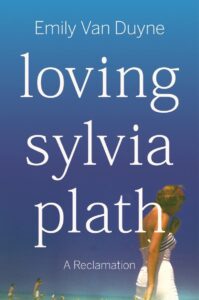
Emily Van Duyne, Loving Sylvia Plath: A Reclamation
W.W. Norton, July 9
A “radical” new reading of Plath’s life and legacy from Plath scholar, superfan, and Literary Hub contributor Emily Van Duyne, which examines the many myths surrounding the poet before taking them apart, wiping off the grime, and reconstructing a new vision of Plath for the future. –ET
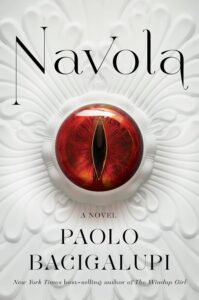
Paolo Bacigalupi, Navola
Knopf, July 9
Paolo came up in YA and is set to release a wide-ranging fantasy about the families living in Navola, a city-state with a mysterious history. It’s a coming-of-age for Davico di Regulai who “will be expected to take the reins of power from his father and demonstrate his mastery of the games of Navolese diplomacy: knowing who to trust and who to doubt, and how to read what lies hidden behind a smile.” –JM
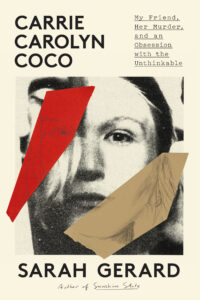
Sarah Gerard, Carrie Carolyn Coco
Zando, July 9
Femicide is explored in a deeply personal manner by Sarah Gerard, whose friend Carolyn Bush was stabbed to death by her New York City roommate in 2016. Bush was a poet, and her roommate Render was an art handler, and Gerard sets out to understand how it came to murder, looking beyond her friend’s ecosystem to the wider systems at work. –JM
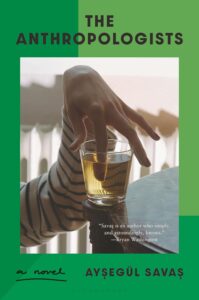
Ayşegül Savas, The Anthropologists
Bloomsbury, July 9
Asya, named for the continent, is a documentarian who likes to spend time watching people in her local park, and is discussing a move with her partner Manu to a foreign city. They are already third-culture kids, and their families back home are aging; the are making a world even as the one of their childhoods disappears. Aysegül Savas previously published the well-received White on White. –JM
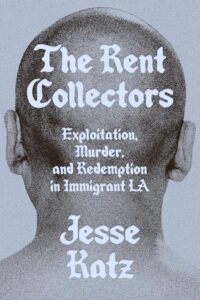
Jesse Katz, The Rent Collectors: Exploitation, Murder, and Redemption in Immigrant LA
Astra House, July 16
Teenaged wannabe gangster Giovanni botches a hit, instead killing a newborn child in Los Angeles, and is in turn dragged over the Mexican border to be killed. Only that goes wrong too, and Giovanni sets off to bring the gang to justice. This true story looks at what a death is worth and how a crime can be forgiven. –JM
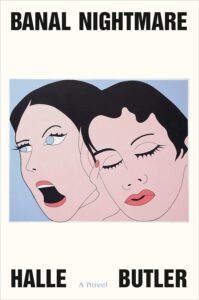
Halle Butler, Banal Nightmare
Random House, July 16
I think we all know something about banal nightmares by now. But Butler’s book, in which a millennial New Yorker winds up back in her Midwestern hometown after a breakup, is unlikely to be banal, though it may be nightmarish—after all, Butler is low-key the voice of a (tired, furious, disappointed, disoriented) generation. I’ll have to read it at arm’s length lest it cut too close to the bone. –ET
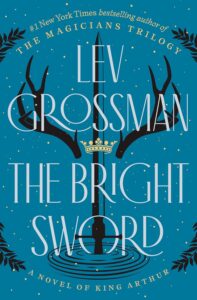
Lev Grossman, The Bright Sword
Viking, July 16
Lev Grossman has been talking about Arthurian legend since before he finished The Magicians trilogy—and now he’s made good on his obsession, with a story about a knight who arrives at the Round Table to find that the heroes of Camelot have all left or died, so he and the leftovers set out to try and rebuild Camelot in an increasingly unsettled Britain. –DB

Eugene Lim, Fog & Car
Coffee House Press, July 16
Eugene Lim’s debut comes back into print, thanks to the fine folks at Coffee House Press! Fans of Dear Cyborgs and Search History will be delighted to see the genesis of Lim’s searching and curious style, in a novel that follows a couple after their separation who can’t help continue to haunt each other’s lives through strange and surreal occurrences, rendered in strange and surreal prose. –DB

Shalom Auslander, Feh
Riverhead, July 23
Yiddish for “Yuck,” Feh tells the story of Auslander’s upbringing in Monsey, New York by a dysfunctional Orthodox Jewish family, and recounts “his attempt to exorcize the story he was raised with—before he inflicts it onto his children and/or possibly poisons the relationship of the one woman who loves him.” Featuring Phillip Seymour Hoffman, a Pulitzer-winning poet, Job, Author Schopenhauer, Wolf Blitzer, and the pastor of a now-defunct church in LA, the memoir promises to be as funny and heartfelt as his other books. –EF
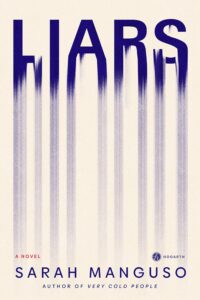
Sarah Manguso, Liars
Random House, July 23
From the author of Very Cold People and 300 Arguments comes a new novel about making art and also being married and also having children that is being pitched as Days of Abandonment meets Dept of Speculation. Which is a very good pitch. Sign me up, please. –ET
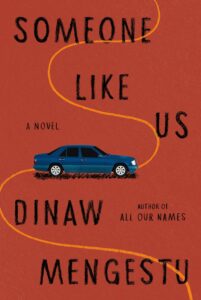
Dinaw Mengestu, Someone Like Us
Knopf, July 30
Home from Paris, Mamush visits his Ethiopian family in Washington D.C. the same day his father is found dead in his garage, with few explanations. Mamush’s marriage is fraying and the urge to understand or solve his father’s death and own repressed memories by crossing the country has a bigger meaning. –JM
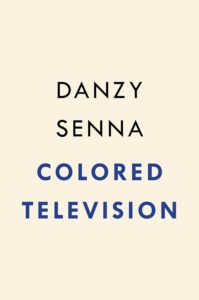
Danzy Senna, Colored Television
Riverhead, July 30
It’s been an interesting couple of years for the racial-identity-industrial complex, and Danzy Senna’s new novel takes an interesting tack. Abandoning a “mulatto War and Peace” to hustle in Hollywood, meeting a producer who starts her on the “Jackie Robinson of biracial comedies” (these log lines …). Dark humor is promised. –JM
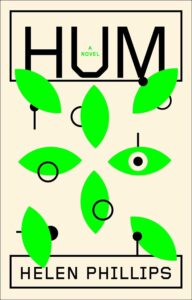
Helen Phillips, Hum
S&S/Marysue Rucci Books, August 6
There’s a lot going on in this novel, but trust Helen Phillips to navigate it effortlessly. May and her husband are raising their kids in a near-future city transformed by climate change (imagine your child has never seen a strawberry) and technology (imagine your laptop becoming a person-sized womb). After earning a big payday for undergoing a procedure that makes her face unreadable to surveillance, she splurges on a weekend trip to the Botanical Garden (think Disney World, but with nature), where things take a bad turn. It’s Anxiety Central, but in a good way. –ES
Sam Sax, Yr Dead
McSweeney’s, August 6
Bildungsroman, anyone? Bildungsroman? This lyrical novel in fragments tells the story of a life from the vantage point of the narrator’s final moments. Ezra is a queer, Jewish person carrying out their last act of protest. While they experience their last moments, they also experience their entire life as their memories spill out before them. From diaspora and desire to history and generational trauma, Yr Dead earnestly explores the things that make us human and alive while the story rushes headlong into death. –MC
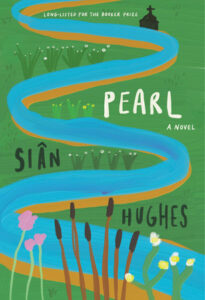
Siân Hughes, Pearl
Knopf, August 6
Longlisted for the 2023 Booker Prize but only now being published in the U.S., Hughes’s novel is a refraction of the 14th-century poem of the same name, written by the same unknown author as Sir Gawain and the Green Knight, who has become known as “the Pearl poet.” All of that grief, loss, love, family, is here transmuted into the story of an English childhood. –ET
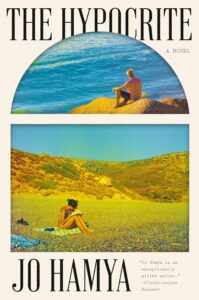
Jo Hamya, The Hypocrite
Pantheon, August 13
From the author of Three Rooms, a novel set during one staging of a play—which the playwright has written about her novelist father’s fall from grace. Natasha Brown calls it “a story of misunderstanding and failed connection, told with a dreamy, Sofia Coppola-esque quality,” and Chris Power described it as “an acid chamber piece that skewers the father, mother and daughter at its heart without denying them their messy, affecting humanity.” Sounds perfect. –ET
Fiona McFarlane, Highway Thirteen
FSG, August 13
No one in Australia imade it out of the 1990s without being transfixed by the grisly murder of backpackers looking to hitch a ride. McFarlane pegs her short story collection to a moment in 1998 when a man is arrested for serial murders, but complicates matters by writing stories back into the past and into the future to look at how communities make sense of murder, how personal histories are rewritten, and how grisly stories such as these are spread. Always happy to see an Aussie in the mix! McFarlane has been shortlisted for the Stella Prize and won the Dylan Thomas Prize. –JM

Arianna Rebolini, Better
Harper, August 13
The latest book from novelist and essayist Arianna Rebolini (formerly the Books Editor at BuzzFeed News) is a memoir about suicide—the lure of it, despite everything good in her life, and the way that lure snakes through families, especially hers, as well as through our culture. The publisher describes it as “a harrowing intellectual and emotional odyssey marked by remarkable clarity and compassion . . . a tour through the seductive darkness of death and a life-affirming memoir.” Rebolini is a great writer and editor; I’ve no doubt this will be a moving and important book. –ET
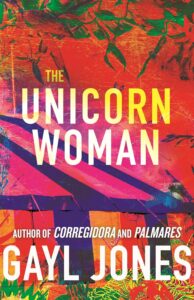
Gayl Jones, The Unicorn Woman
Beacon Press, August 20
After fighting in World War II for the United States and its allies, army veteran Buddy Ray Guy returns to the Southern U.S., where Jim Crow marks him as less-than. His narration takes the reader out of Memphis and Lexington and back to France, where he recalls love affairs, circus barkers, topiary trimmers, and the titular Unicorn Woman. He’s a dreamer, a spiritualist, and has possibly dreamt a way out of his lot. –JM
Alexis Pauline Gumbs, Survival is a Promise: The Eternal Life of Audre Lorde
FSG, August 20
In addition to being one of our great living poets, Gumbs is perhaps our most knowledgeable expert on Audre Lorde’s life and work. This brilliant new biography of Lorde should help provide a deeper understanding of Lorde’s writing and life for those who’ve only encountered the most superficial of her quotes and ideas—particularly around Lorde’s incredible ecological activism and her powerful, driving sense that humanity and the Earth are inextricably entwined. –DB
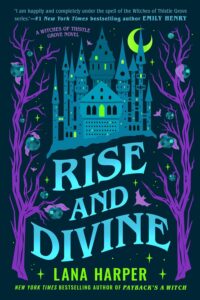
Lana Harper, Rise and Divine
Berkley, August 20
I started reading romance in 2023 and Harper’s Witches of Thistle Grove books are simply perfect: one part Hocus Pocus, one part Gilmore Girls, with just enough steaminess to make your pulse pick up. This one looks like a “third-time’s-a-charm” will-they-won’t-they and I’m sure it will be exactly the late-summer escape-read we’ll all need by then. May there be a thousand of these delightful, joy-filled books to come. –DB
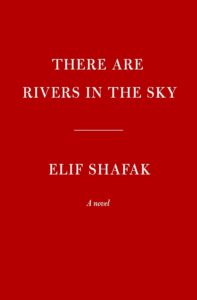
Elif Shafak, There Are Rivers in the Sky
Knopf, August
Shafak’s latest is a sweeping, historical novel about three characters whose lives are entwined by the epic of Gilgamesh. Moving from the 19th century to the present, from the River Thames to the River Tigris, this novel is both expansive and tender. Exploring love, memory, healing, and change, There Are Rivers in the Sky is an enthralling novel by the internationally bestselling Elif Shafak. –MC
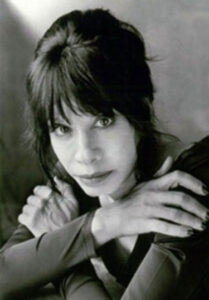
Binnie Kirshenbaum, Counting Backwards
Soho Press, September 3
Binnie Kirshenbaum novels are sharp, harrowing, and disarmingly funny at the rawest of moments. In her new novel from Soho Press, a woman must reckon with her husband’s dementia and terminal diagnosis of Lewy body dementia. It promises to be a devastating and beautiful read. –EF
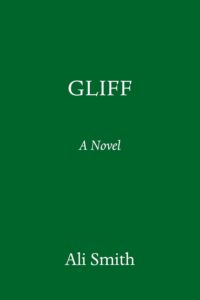
Ali Smith, Gliff
Pantheon, September 3
After wrapping up her Seasonal Quartet in typically playful fashion with a fifth book (Companion piece), Smith embarks on yet another boundary-pushing literary excursion—and all we know about this one is that it’s got a companion novel in 2025 called Glyph, and that “gliff” is a Scottish word for a shock or fright. It’s sure to be strange and wondrous. –DB
Emily C. Hughes, Horror for Weenies: Everything You Need to Know About the Films You’re Too Scared to Watch
Quirk Books, September 3
Emily Hughes is the discerning horror reader’s go-to source for the next best scare—her newsletter and monthly new-horror round-ups are truly a gift—and I’m thrilled that her first book is going to be a guide to all of the horror films that I’d rather read a Wikipedia entry for than watch and get nightmares from. Plus I bet it’s going to be funny as hell, too. –DB
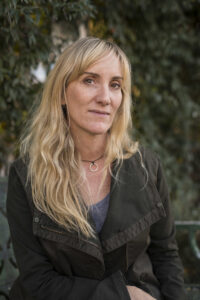
Jamie Quatro, Two-Step Devil
Grove, September 10
The first book my now-husband gave me as a gift was Jamie Quatro’s I Want to Show You More. It worked out for him, and for me—I have been a fan of her sexy, indelible prose ever since (read Fire Sermon, if you haven’t) and can’t wait to read more. –ET
Mariana Enriquez, trans. Megan McDowell, A Sunny Place for Shady People
Hogarth, September 17
At this point, Mariana Enriquez needs no introduction (nor does her translator, Megan McDowell) with her ghoulish stories popping up in all the best magazines and her 2021 collection The Dangers of Smoking in Bed a finalist for the International Booker Prize. In the first of two forthcoming books in English, A Sunny Place for Shady People promises more trademark Enriquez stories combining the macabre with explorations of womanhood, parenthood and the lasting legacy of Argentina’s military dictatorships. The second book, Somebody is Walking On Your Grave, sounds like it could be a lot of fun: Enriquez visits cemeteries all over the world and reviews them, in her kooky gothic style. –SR
Chelsea Bieker, Madwoman
Little, Brown, September
Chelsea Bieker is back with another novel about mothers and daughters. This one—which Kimberley King Parson calls a “propulsive, unsparing take on generational violence,” centers on Clove, who has gone to great lengths to make her life—and herself—perfect, in order to erase her terrifying, violent childhood. But when that childhood comes back, in the form of a letter from a California women’s prison, she must finally figure out how to face it. I’m always here for Bieker’s vibrant, darkly funny, and devastating prose, so I’m looking forward to more of it. –ET
Adam Haslett, Mothers and Sons
Little, Brown, Fall
Adam Haslett’s Imagine Me Gone (shortlisted for a National Book Award in 2017) is one of my favorite novels of the last decade, so I am very excited about Mothers and Sons. Unsurprisingly, the crux of the novel is the estrangement of a gay immigration lawyer from his mother, a relationship that gets thrown into even starker relief by a difficult asylum case. –JD
Sarah Moss, My Good Bright Wolf
FSG, Fall
In another exciting instance of a novelist publishing their first work of nonfiction (see Lydia Millet’s We Loved It All), Sarah Moss, author of Ghost Wall and The Fell, is giving us a memoir this fall. Details are still mum, but The Bookseller reports that My Good Bright Wolf is “a memoir about thinking and reading, eating and not eating, about privilege and scarcity, about the relationships that form us and the long tentacles of childhood.” That’s enough for me! –ES
Daniel Saldaña París, trans. Christina MacSweeney & Philip K. Zimmerman, Planes Flying Over a Monster
Catapult, 2024
A collection of ten essays from one of Mexico’s most talented young writers, each one delving into how the city where he lived at the time affected his life: there are the student years in Madrid, party years in Mexico City, recovery in Montréal and the story of how he grew up in a cult—not a sex cult—near Cuernavaca, each of them shot through with humor and forming a kind of Künstlerroman in their totality. –SR
Sara Gran, Little Mysteries
Dreamland Books, 2024
Sara Gran is one of those writers I’m always turning people onto, and her next book should be a thrill for long-time fans and new arrivals alike: her first short story collection, with eight stories (and a novella!) featuring characters from the Claire DeWitt books as well as what publicity copy promises to be “a new fictional universe.” What that means in Sara Gran’s hands is anybody’s guess—but I bet it won’t be anything like we expect. –DB
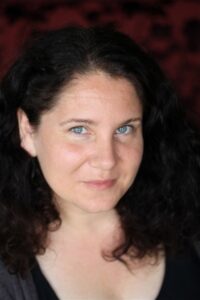
Carol Rifka Brunt, Mary Ann
Dial, 2024
Fans of Carol Rifka Brunt’s 2012 debut novel, Tell the Wolves I’m Home (a large and vocal group that includes yours truly), will be delighted to learn that Brunt’s second novel will finally hit bookshelves in 2024. The Publishers Marketplace announcement calls it a historical novel “inspired by the life of Mary Ann Bevan, known for many years as ‘the ugliest woman in the world.’” Good things come to those who wait! –ES
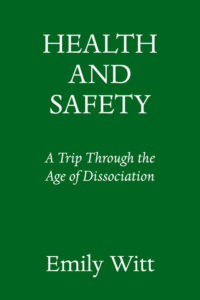
Emily Witt, Health & Safety
Pantheon, 2024
New Yorker staff writer Witt’s follow up to Future Sex follows Witt from 2016 (read: Donald Trump’s election) to 2020 (read: George Floyd’s murder), during which time the planet continued to crumble and also she fell in love, finding herself “pining for the same monogamous normy life she once questioned.” As someone who was also in New York, in love, and feeling uncontrollable rage about the end of the world-slash-society during this time, I suspect it will be a bracing read. –ET
Mark Haber, Lesser Ruins
Coffee House Press, 2024
I don’t know much about Haber’s third novel, except for its brief Publishers Marketplace description, which calls it a “frenetic meditation on love, grief, academia, Judaism, and coffee,” but as Lit Hub’s resident Haber stan, we all know that whatever it is, I am anticipating it with (very intellectual, I assure you) glee. –ET









